32 tips for taking care of senior cats
Here's some must-know tips for taking care of senior cats.
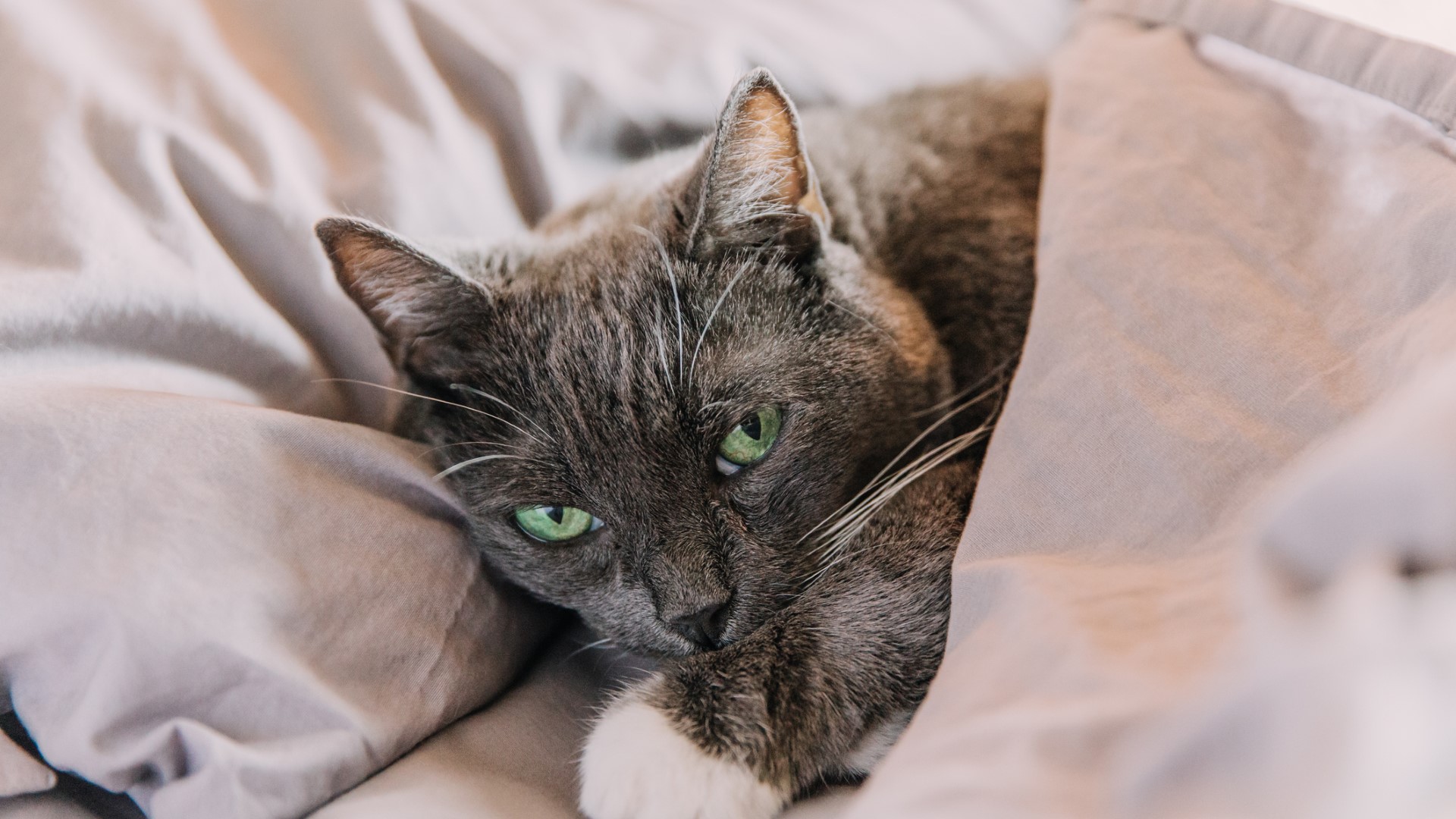
Once your beloved cat reaches 10 years or older, they are typically considered to be a senior. As our kitties enter their golden years, they may need adjustments in how they are cared for by their guardians to ensure their well-being and happiness. These adjustments can include senior cat-oriented accommodations for accessibility, diet, comfort, health, mobility, enrichment, grooming, hydration, and companionship.
Investing in some of the best cat food for senior cats and best wet cat food, making sure they have easy access to comfortable spaces, and monitoring for any changes in their mental, emotional, and physical health are just some of the ways you can help ensure your senior kitty is living their best life.
Of course, every senior cat is an individual, and becoming attuned to their baseline behaviors, health, and mobility changes can help you adjust to your feline friend's specific needs as they enter their senior years.
Below, our guide will cover practical advice and crucial tips for taking care of senior cats to ensure your buddy lives a long, healthy, and happy life.
32 tips for taking care of senior cats
1. Invest in pet insurance

Investing in the best pet insurance can help ensure your senior cat gets the medical care it needs. While most plans won't cover an already existing condition, you can still get coverage for a range of unexpected illnesses and injuries that may occur. Since taking care of senior cats can require additional vet visits, selecting a broad-coverage pet insurance plan is a great idea.
2. Brush them regularly
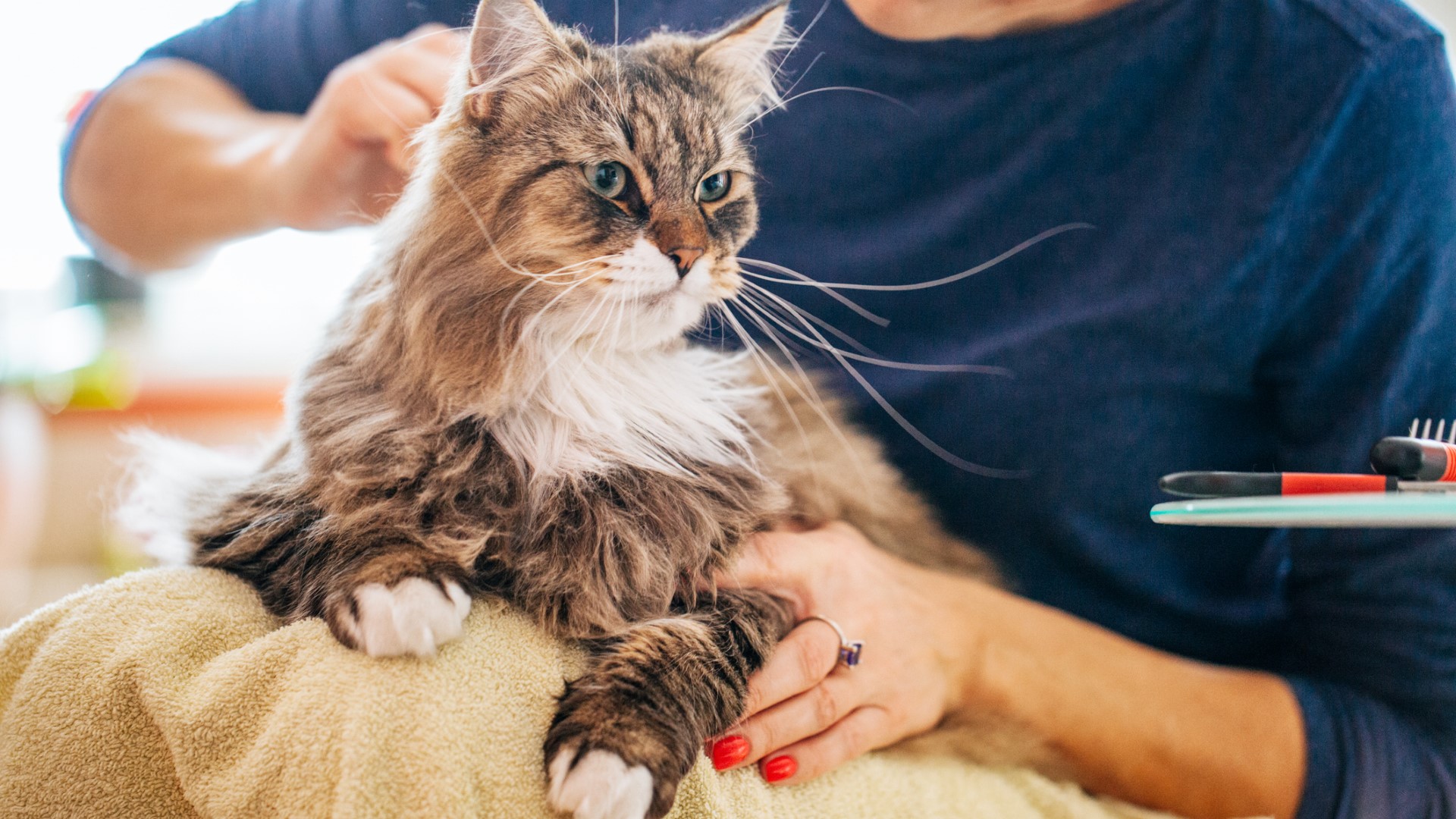
It's important to brush your senior kitty regularly to keep their coat and skin healthy. Brushing removes loose hair, dirt, and grime, preventing tangles, matting, and the formation of hairballs. Regular brushing with one of the best cat brushes also improves blood circulation and distributes oil, promoting a shiny coat. During brushing sessions, you can also check for signs of skin conditions which senior cats can be more prone to developing.
3. Watch for signs of aging-related discomfort
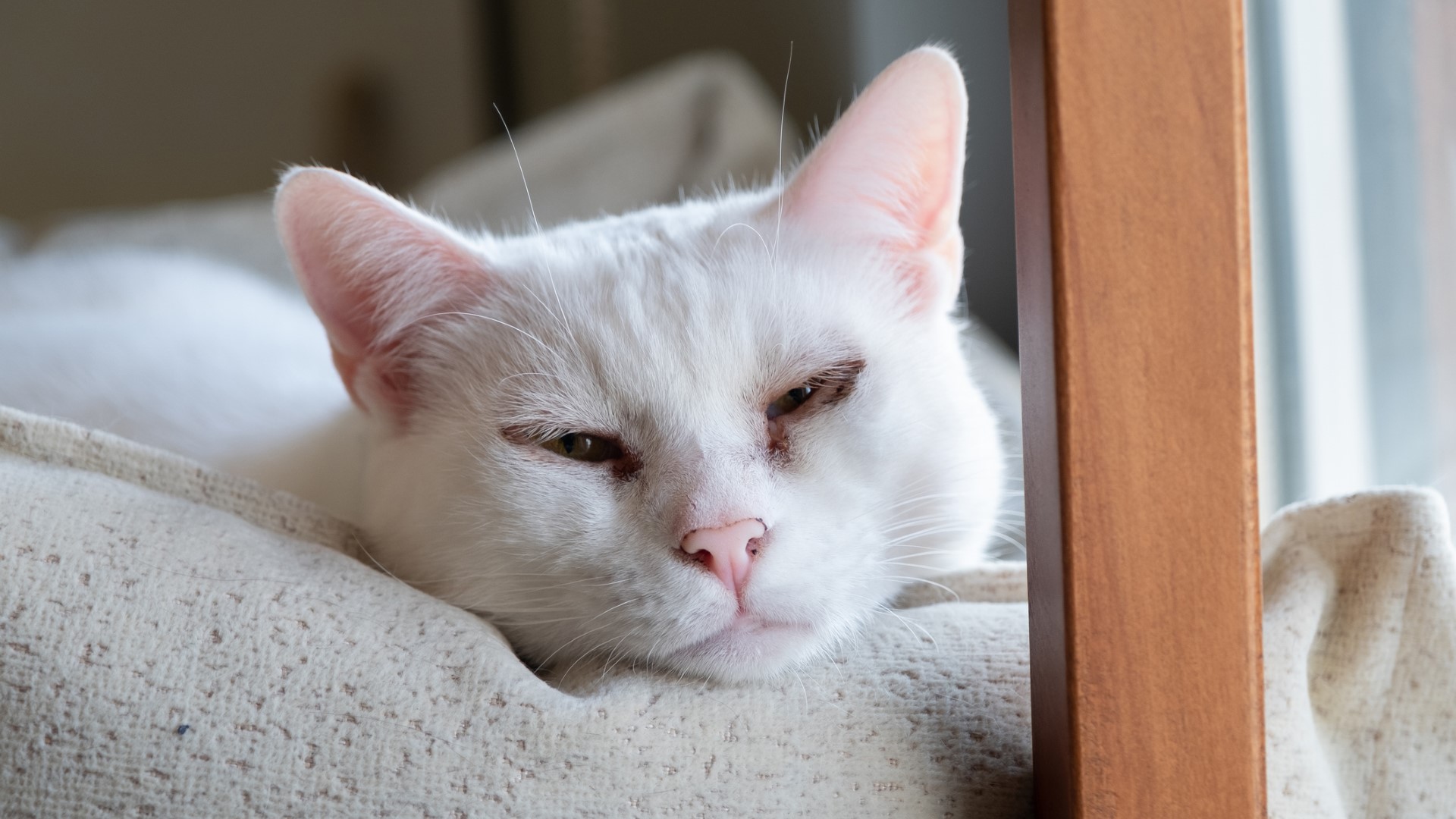
As your kitty becomes a senior, they can begin to show signs of aging-related discomfort. Signs can include difficulty standing or sitting, slowed movements, and reduces fluidity of their movements. You may also notice that your senior cat is reluctant to play or jump onto perches. If you are noticing these signs, make sure to set up an appointment with your vet to help your kitty get on track to feeling better.
Get the best advice, tips and top tech for your beloved Pets
4. Use a senior-formulated diet
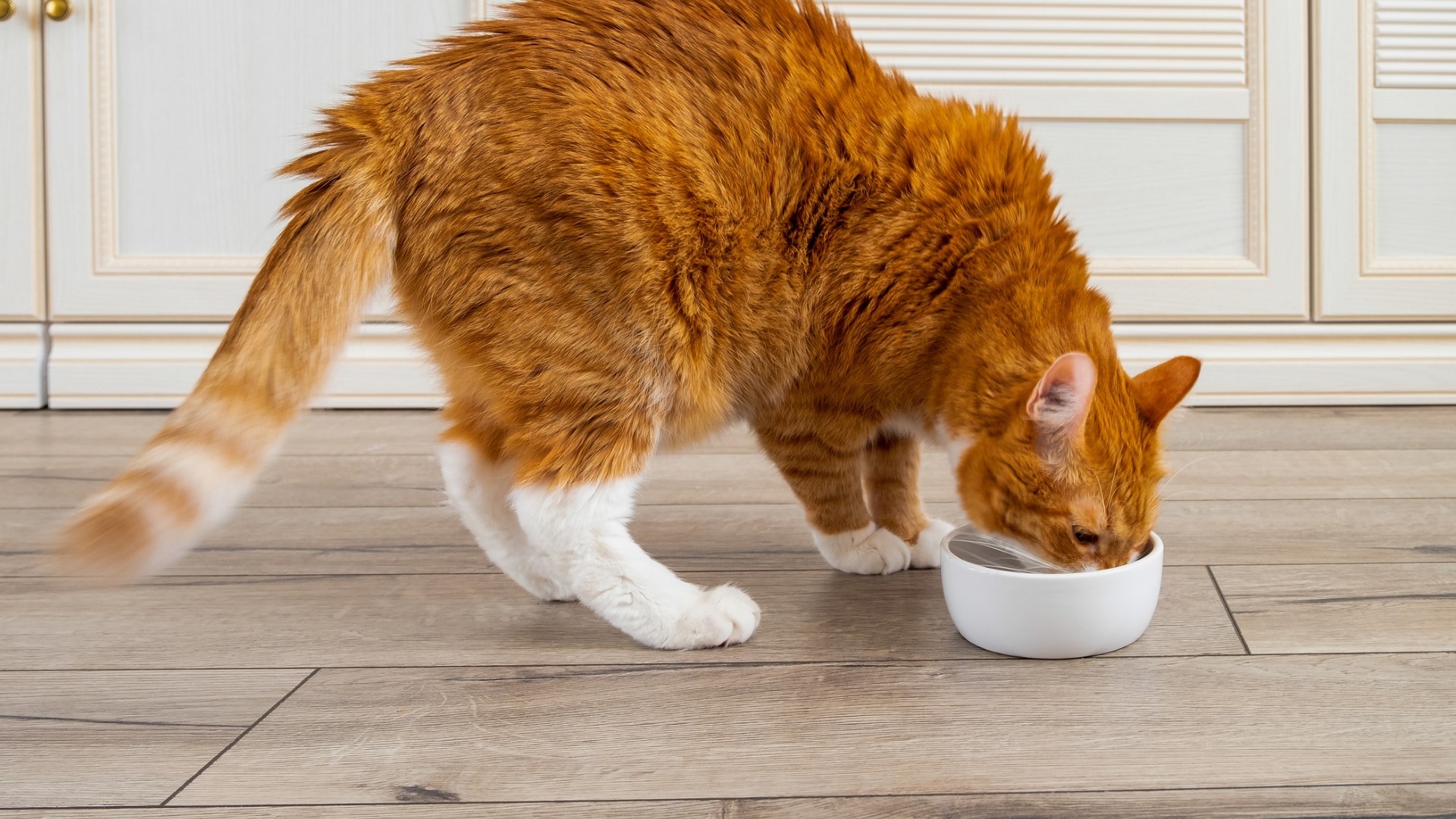
Once your cat is over 10 years old, it's a good idea to switch them to a senior-formulated diet. Older cats need increased protein to maintain their body mass. The source of this protein needs to be high quality and easy to digest to ensure proper absorption. For seniors who have trouble maintaining their weight, look for formulas with moderate to high levels of quality fat.
5. Practice dental care
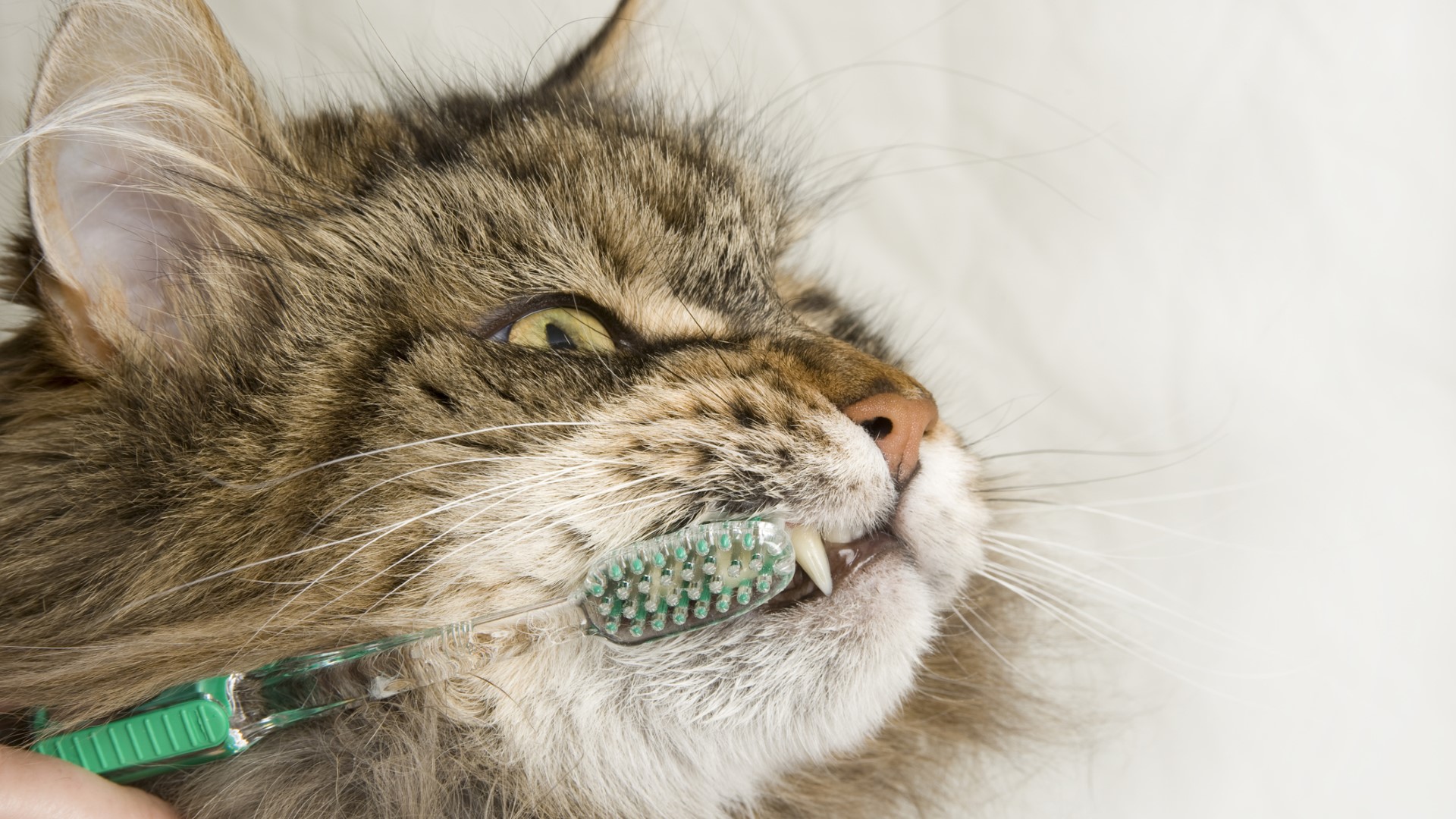
Dental disease can cause significant and life-threatening conditions in cats. Senior cats can be especially prone to developing dental disease, so it's important to maintain their dental hygiene as they age. It's best to brush three times per week to remove plaque and prevent tartar buildup. You can use high-value treats to help your cat become comfortable and accepting of having their teeth brushed.
6. Regular vet check ups
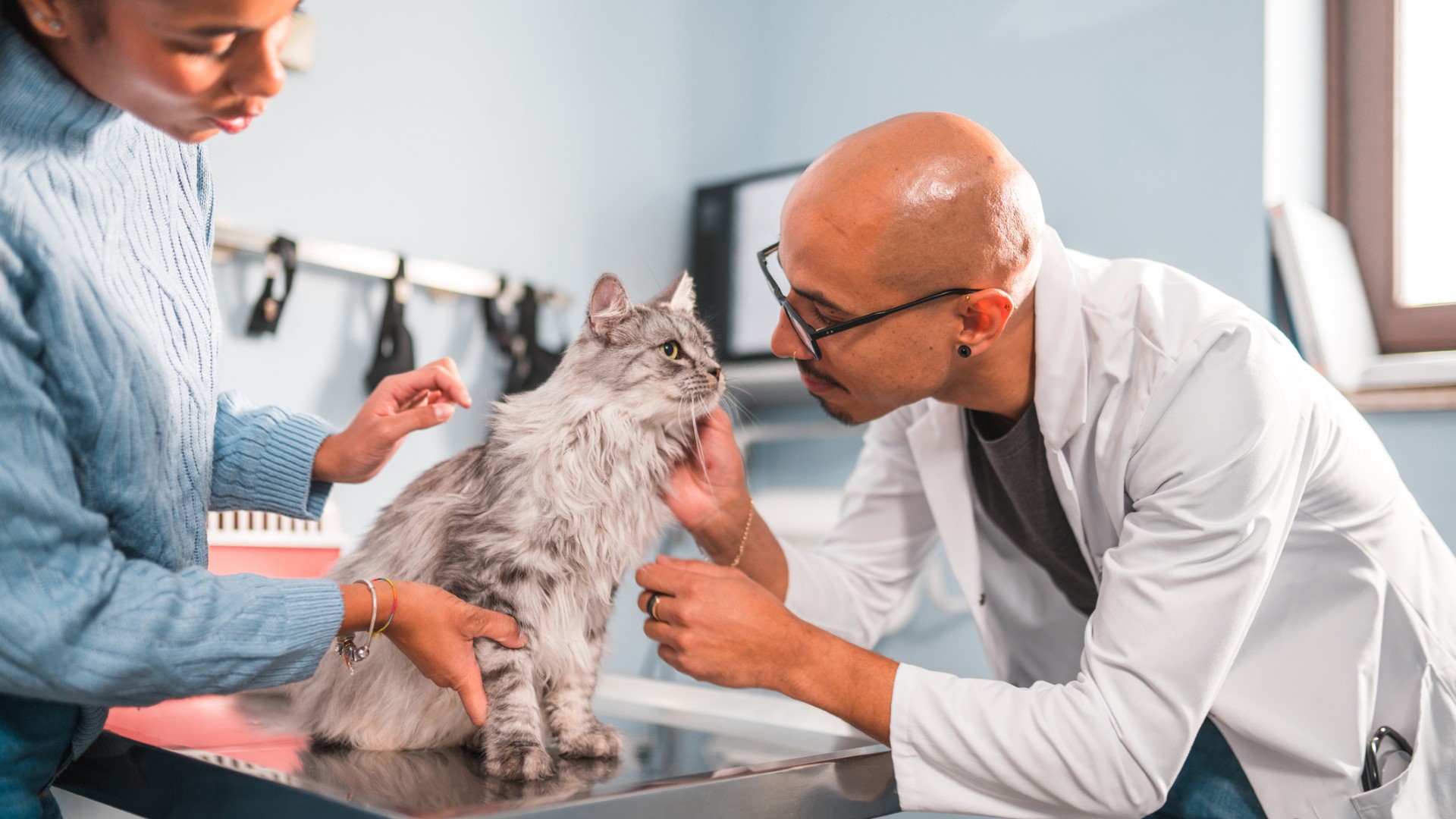
Since senior cats face a higher risk of disease development, it's important to routinely have them examined and screened by your vet. Early detection and treatment of health conditions can greatly increase your cat's quality of life and longevity. Cats over ten years old should have a vet visit every six months while seniors over 15 should be examined every four months.
7. Provide a plush bed
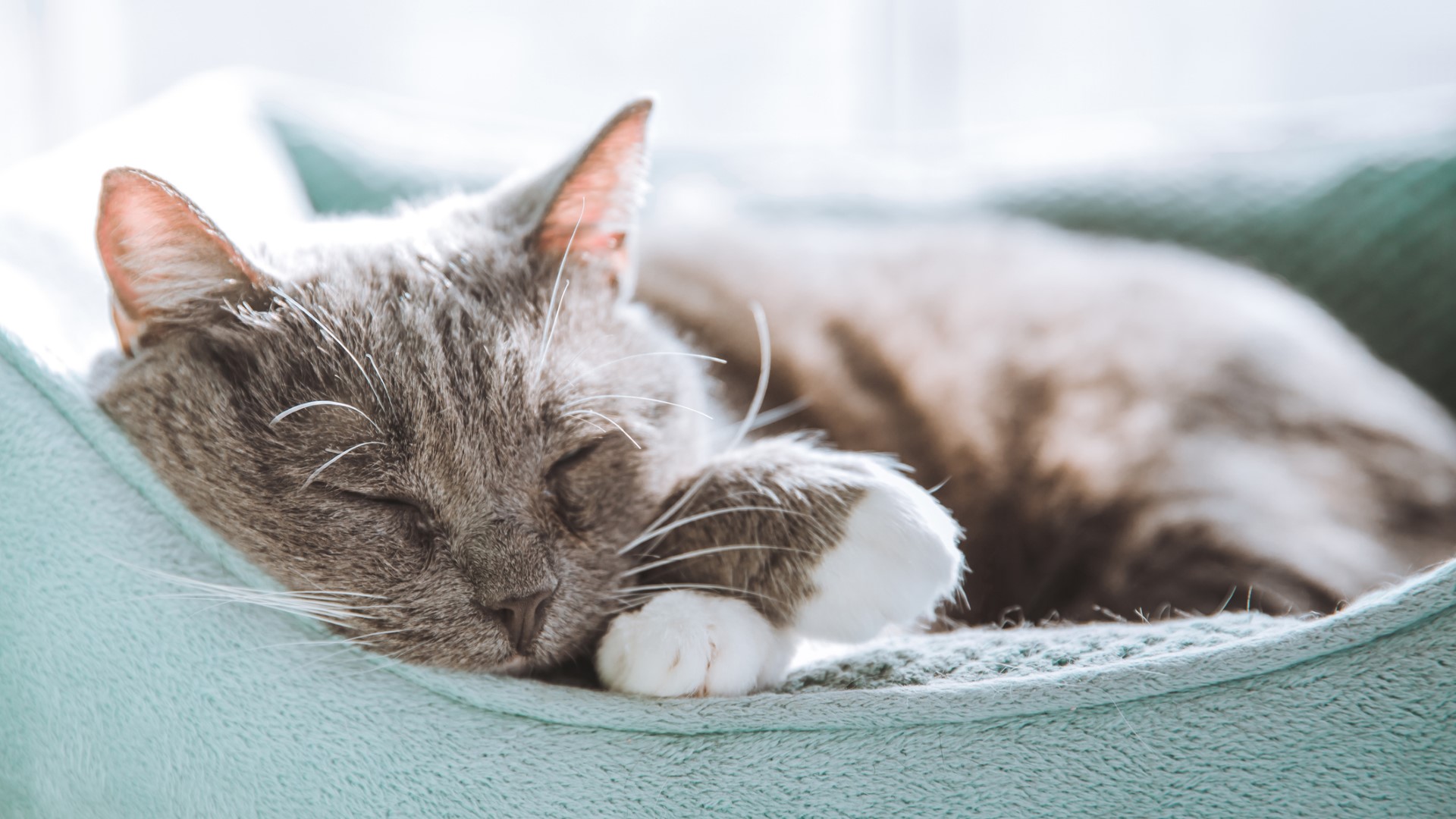
Providing one of the best cat beds for your senior kitty is crucial in helping them feel as comfortable as possible. Orthopedic cat beds can provide additional support for kitties struggling with arthritis. These beds are typically made out of memory foam and can help relieve aching joints. If your senior cat still enjoys climbing, you may want to invest in one bed for ground level and one super plush bed for their favorite perch.
8. Use a easy-to-enter litter box
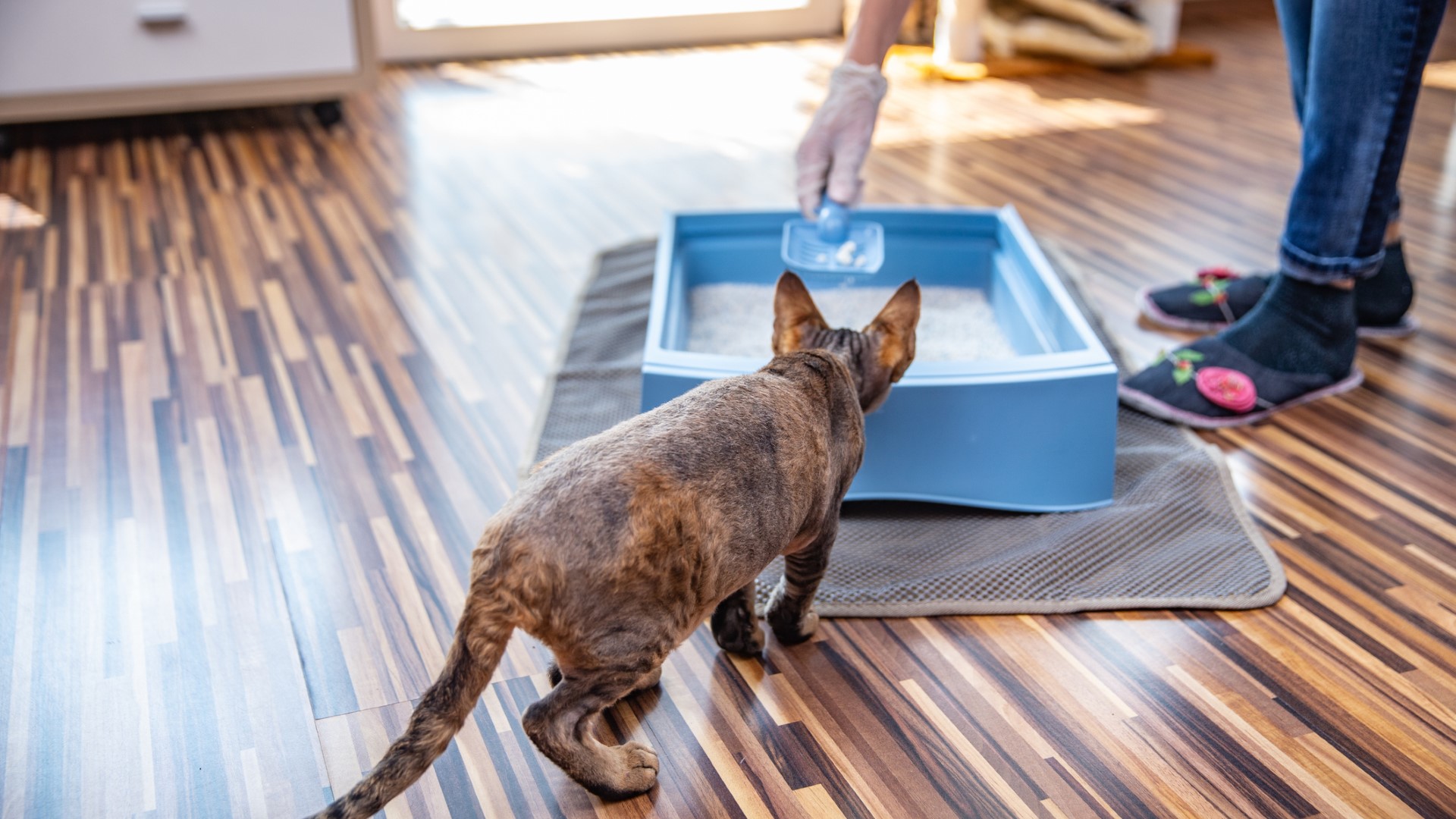
As your cat reaches their golden years, they may have difficulty stepping over obstacles, like a high-sided litter box. To help your senior kitty navigate their space more comfortably, we recommend purchasing one of the best cat litter boxes with low sides for easy access. Supporting their ability to comfortably use the litter box can increase your senior kitty's comfort.
9. Consider joint supplements
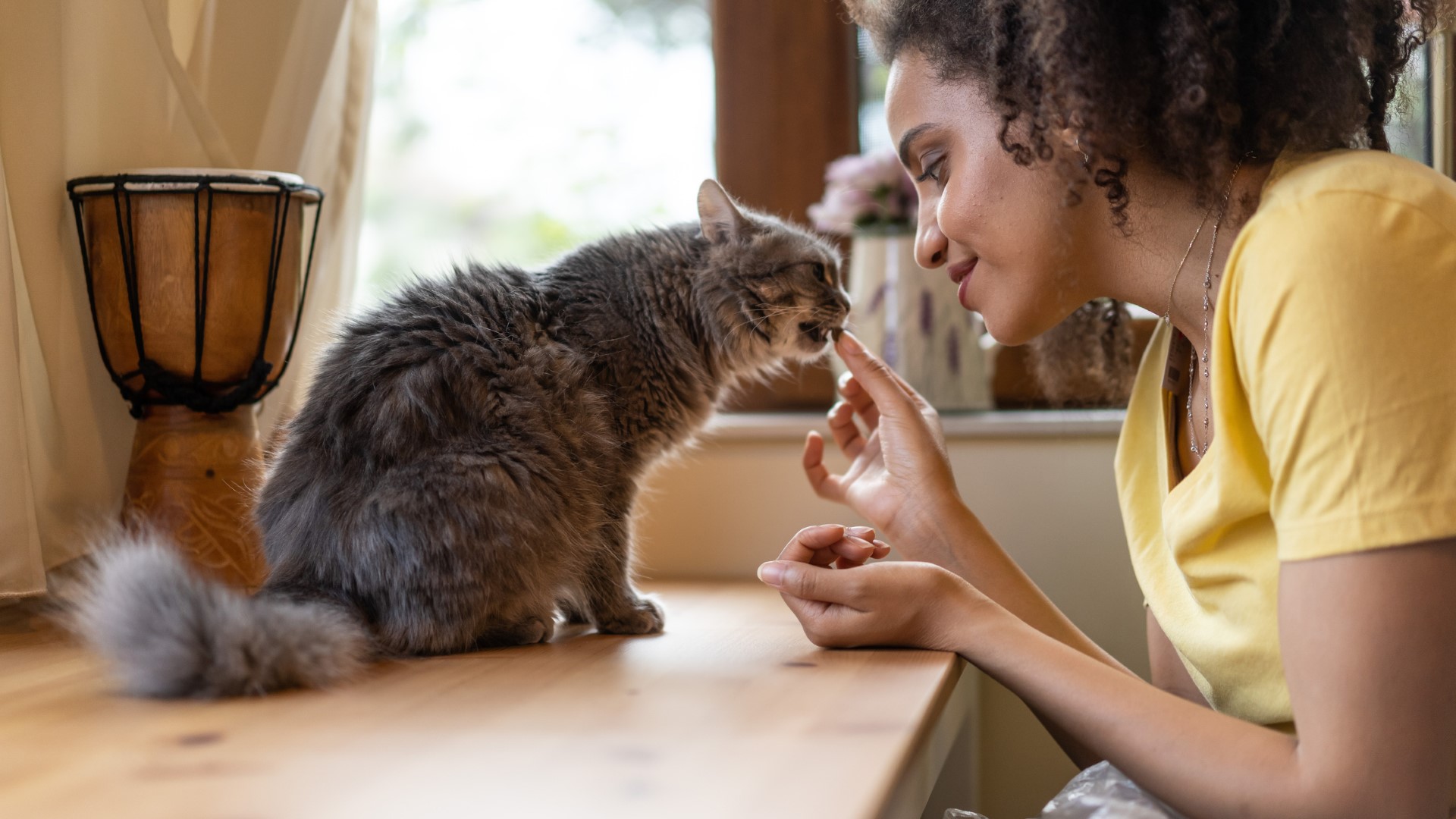
If your cat is showing signs of age-related discomfort or you want to generally support their health as they get older, consider talking to your vet about starting them on supplements. There are a range of supplements to choose from that may be able to support digestive health, promote a shiny coat and healthy skin, prevent hairballs, ease anxiety, and support mobility.
10. Make areas accessible
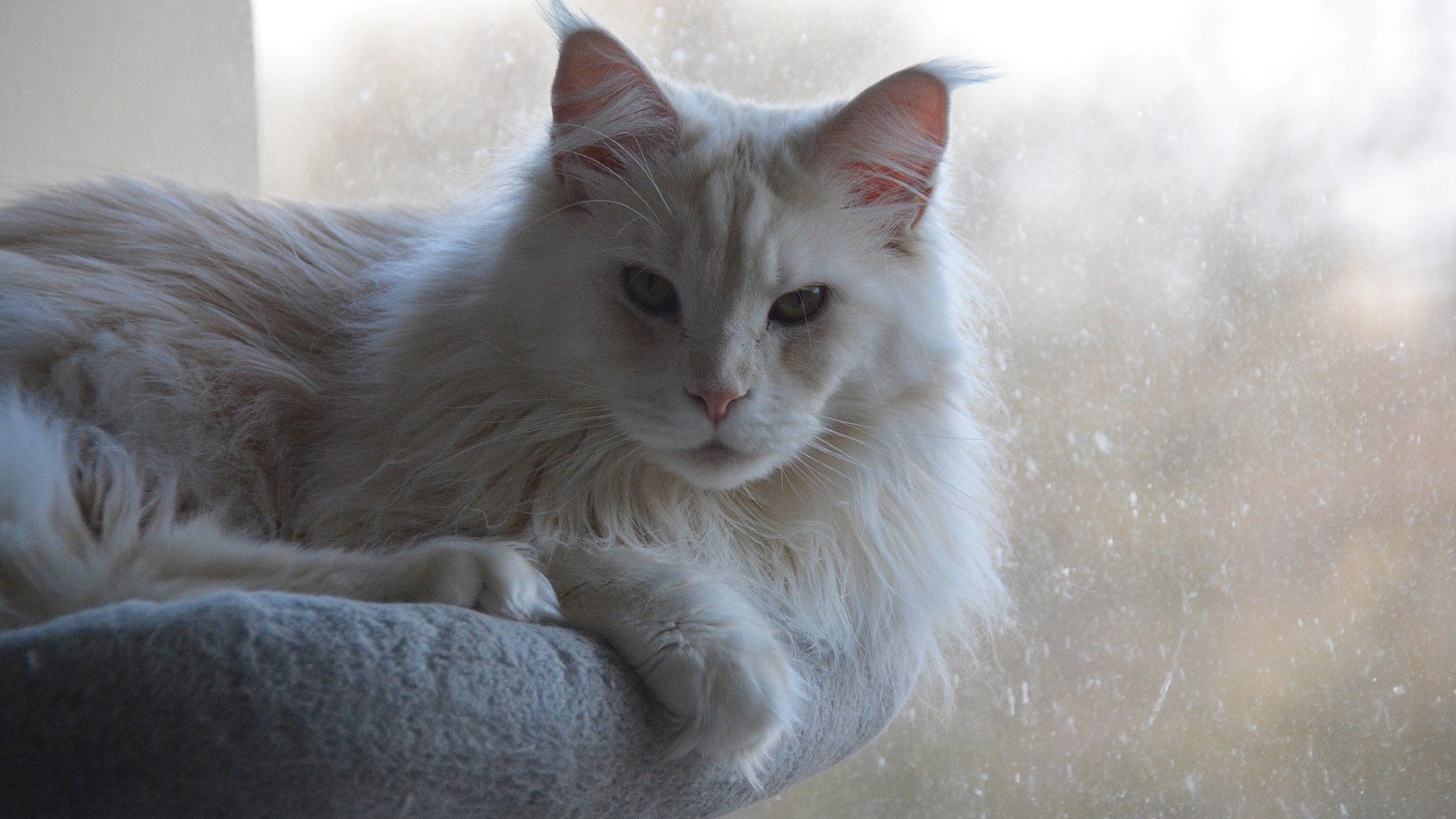
Since your senior cat may have decreased mobility, it's important to ensure they can easily access areas. If they have a favorite perch or love curling up on the window sill, adding in steps, a pet-friendly staircase, or ramps may help them to continue enjoying their spaces. These adjustments can make getting to these spaces easier, and also increases your senior cat's safety when on the descent.
11. Monitor their weight
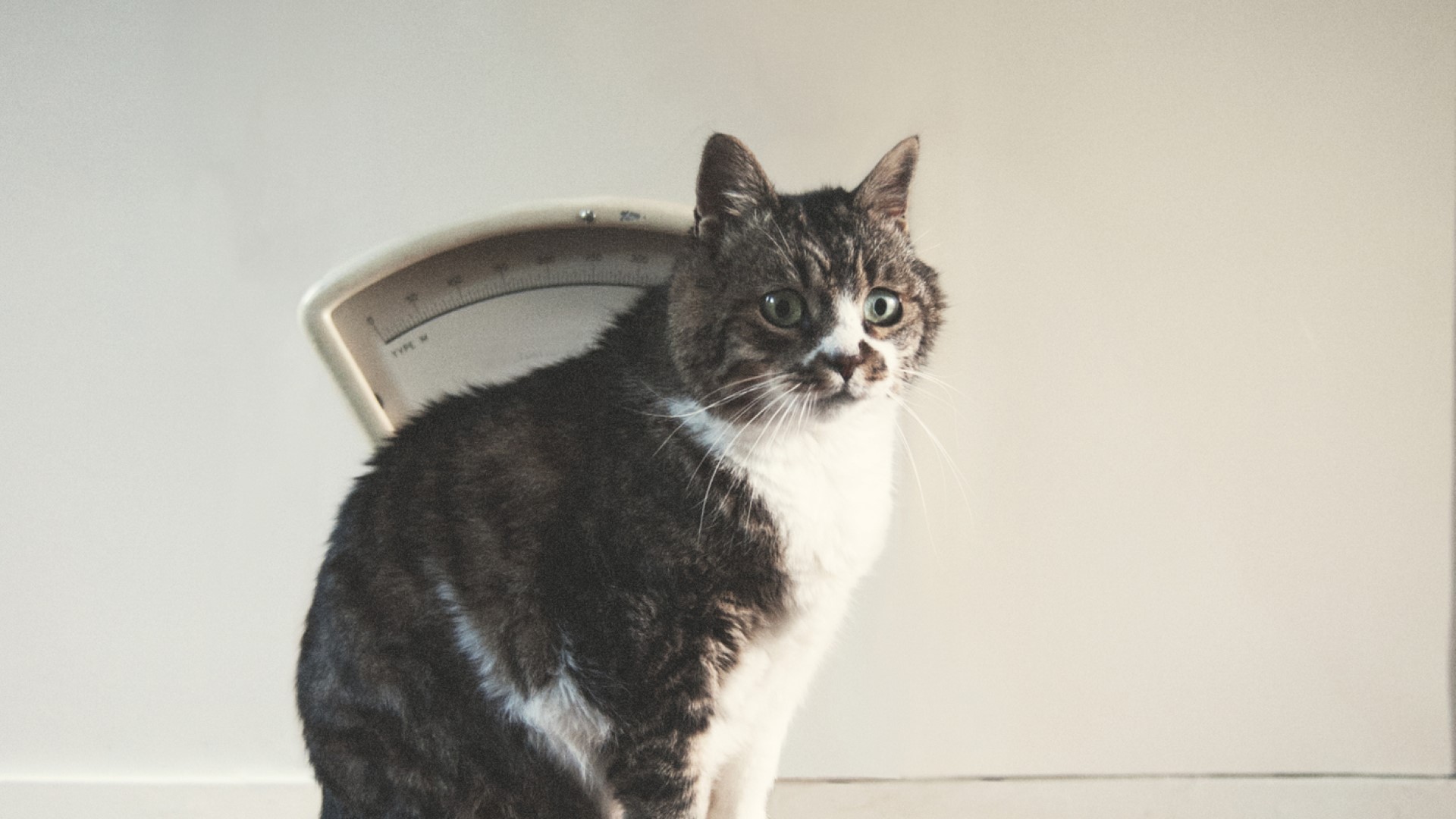
Maintaining a healthy weight can become increasingly difficult as your senior cat ages. They may easily become overweight while others can struggle to keep weight on. Once your cat is above ten years old, it's important to routinely monitor their weight to ensure they stay within a healthy range. Ideally, you should be able to feel but not see their ribs, identify a visible waist, and see their abdomen slightly taper towards their hips.
If you're having a hard time keeping your senior cat's weight within a healthy range, speak to your vet about developing an individualized dietary plan.
12. Supervise them when outside

Senior kitties can be more at risk of becoming lost or injured when outside. If your cat loves to be outside, make sure to supervise them to ensure they stay safe as they enjoy the great outdoors. If they like to go on walks, you can invest in one of the best cat harnesses to help them explore in safety and without roaming too far. If they're a lower-energy senior, they may enjoy basking in the sun with you in the yard or snoozing under the shade of a tree.
13. Become familiar with illnesses that affect senior cats

Senior cats can face a higher risk of certain diseases and health conditions. It's important to familiarize yourself with some of the most common illnesses in cats so you can potentially identify early signs. Hyperthyroidism, kidney disease, diabetes, inflammatory bowel disease, dental disease, cancer, hearing and vision loss, and osteoarthritis can especially affect senior cats.
14. Keep them hydrated
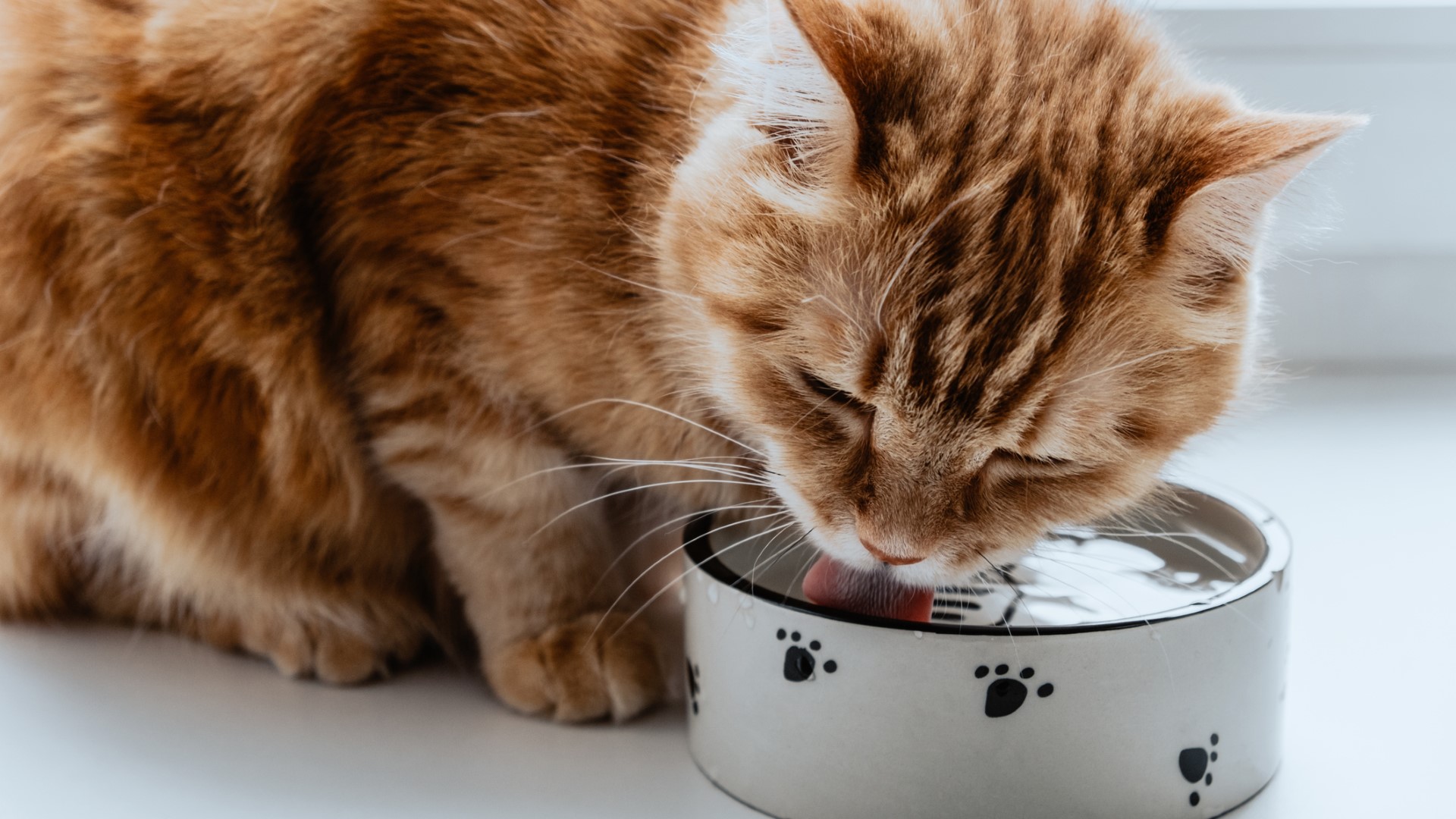
While it's important to always have fresh water available for cats of all ages, it's especially important to make sure your senior cat is drinking enough water. They need a lot of moisture in their diet to maintain their health and prevent chronic illnesses from becoming exacerbated. Make sure to keep track of how much your senior kitty is drinking and have several water bowls placed throughout the home in easy-to-access areas.
15. Continue to provide enrichment
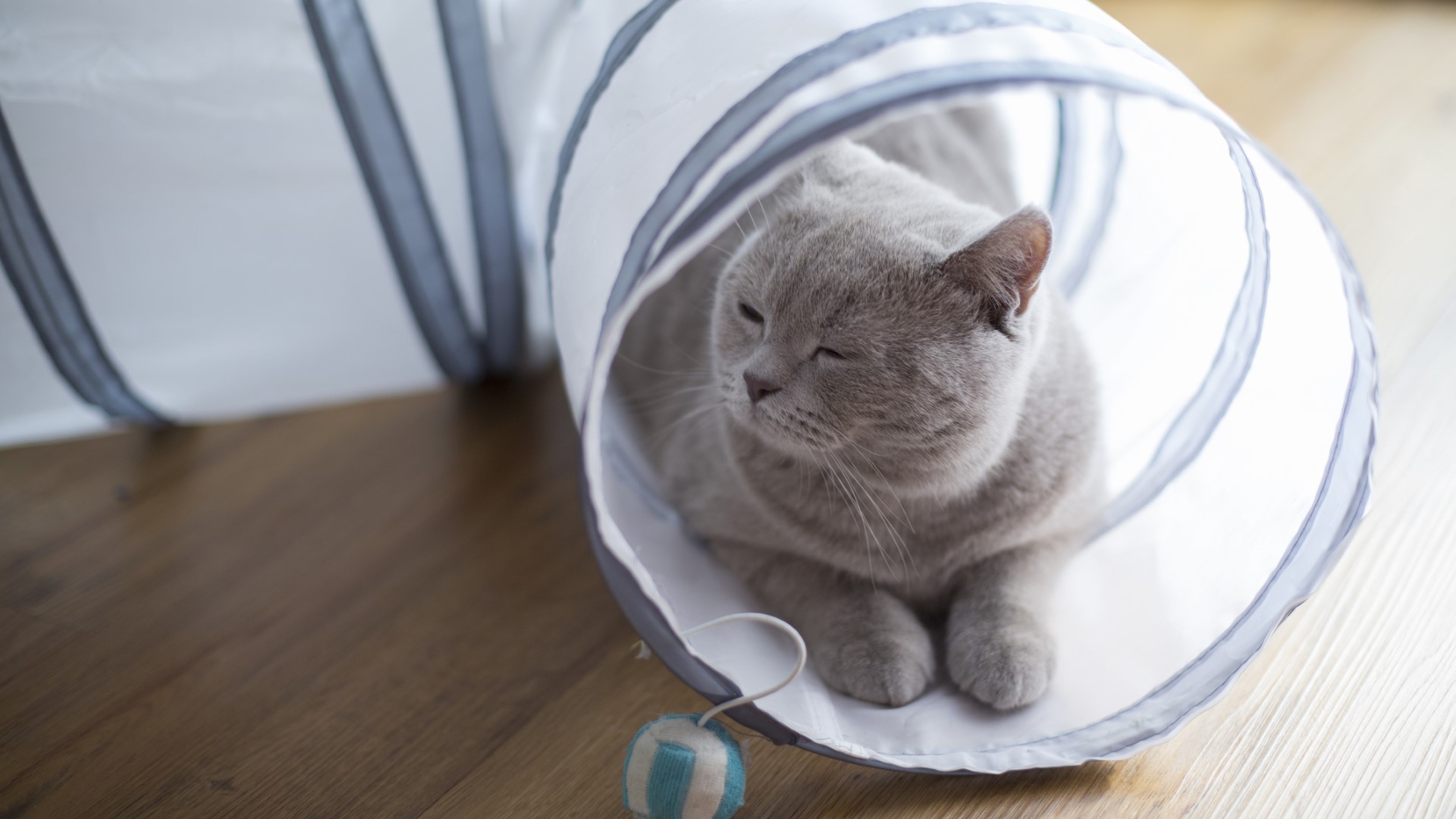
Your senior cat may be slowing down, but you'll still want to provide them with consistent enrichment. While they might not be as interested in or able to leap in the air to catch a toy or dash around the house, your aging kitty will likely enjoy lower energy enrichment.
This can include cat tunnels and boxes for them to explore, cat-safe plants to smell and chew on, and small toys to bat around. You can also hide treats in easy-to-access places to keep them cognitively engaged. Visual enrichment, such as cat-friendly shows and window-gazing can also keep your older cat happy.
16. Minimize stress in their environment
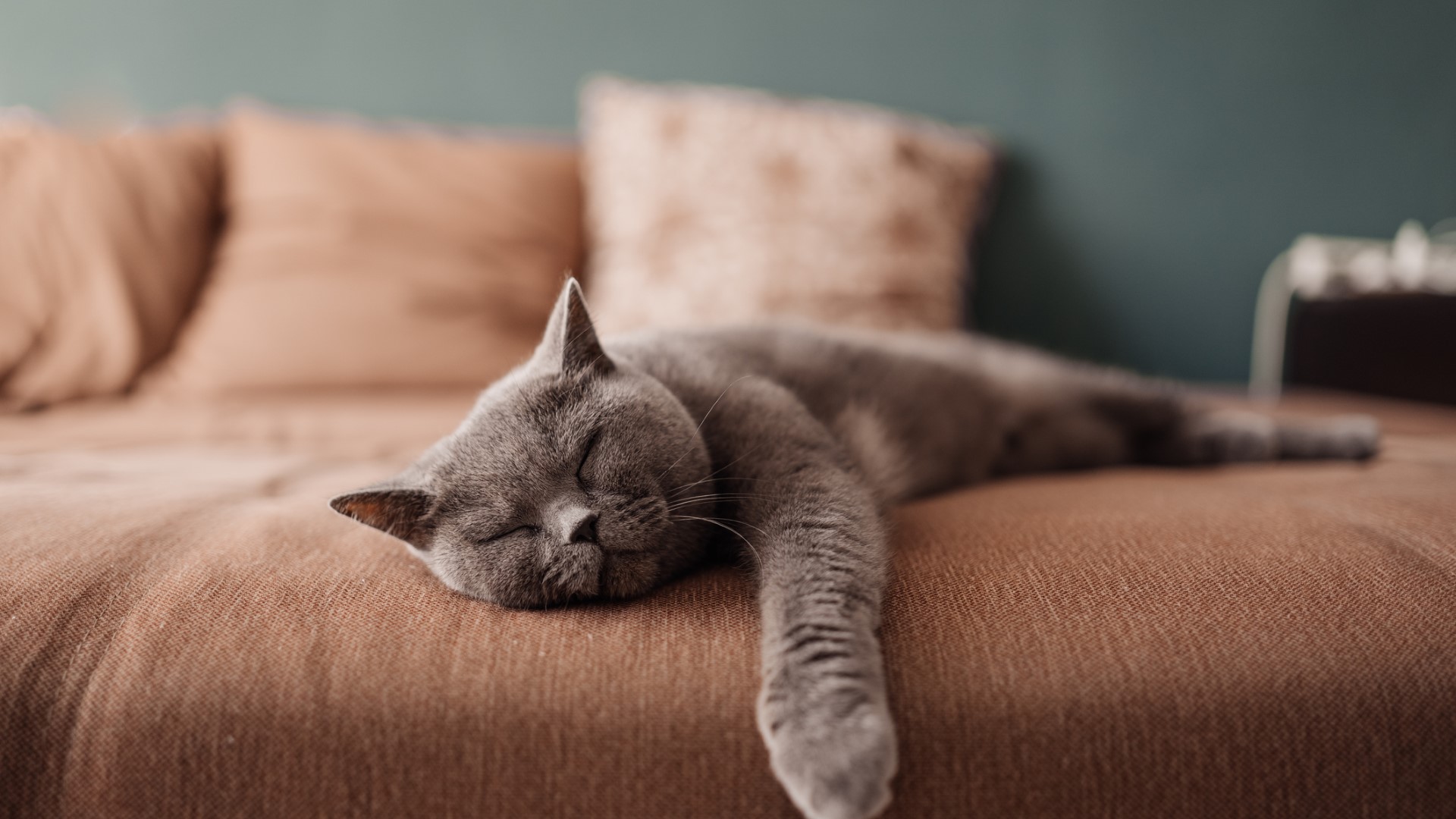
Stress can worsen pain, anxiety, and chronic health conditions in your senior cat. To ensure they happily live out their golden years, it's important to keep their environment low-stress. What may not have caused them much concern when they were younger might now be a trigger at their advanced age, such as dogs trying to play with them.
If your older cat is struggling to feel safe and relaxed in their environment, try to assess what changes you can make, such as creating a space in your home free of rowdy pets or making sure your kitty has plenty of accessible and comfortable places to retreat to if they are feeling overwhelmed. You may also want to speak to your vet about treatment options for lowering their anxiety.
17. Monitor for sudden behavioral changes
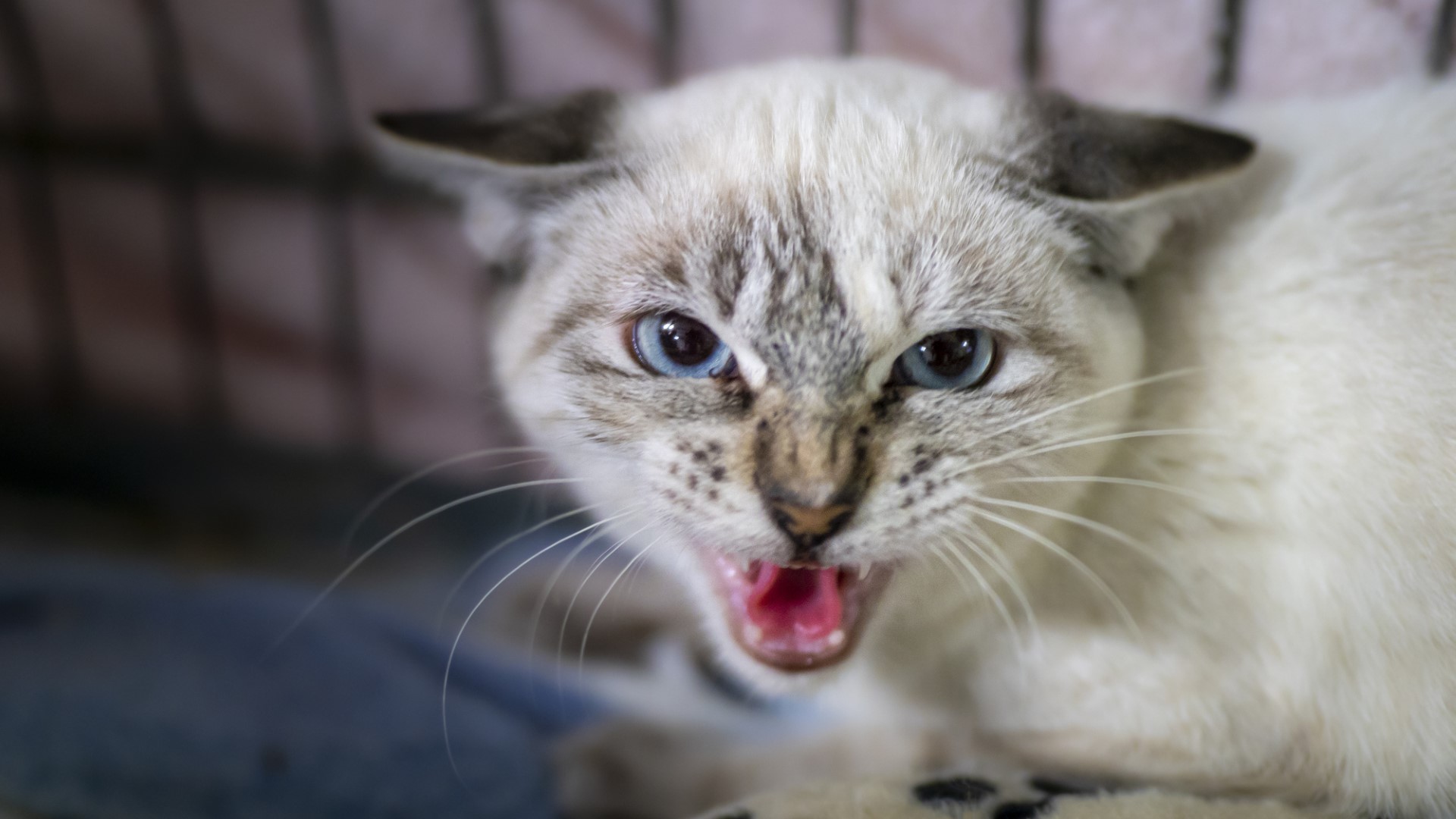
Sudden behavioral changes in your senior cat can be a sign of an underlying health issue. If your normally sweet and snuggly kitty suddenly begins acting defensive and averse to touch, it's important to set up an appointment with your vet. Conversely, if your normally mellow and low-energy senior cat begins acting hyperactive and has difficulty relaxing you'll also want to check in with your vet to assess for possible health conditions like hyperthyroidism.
18. Give them lots of love
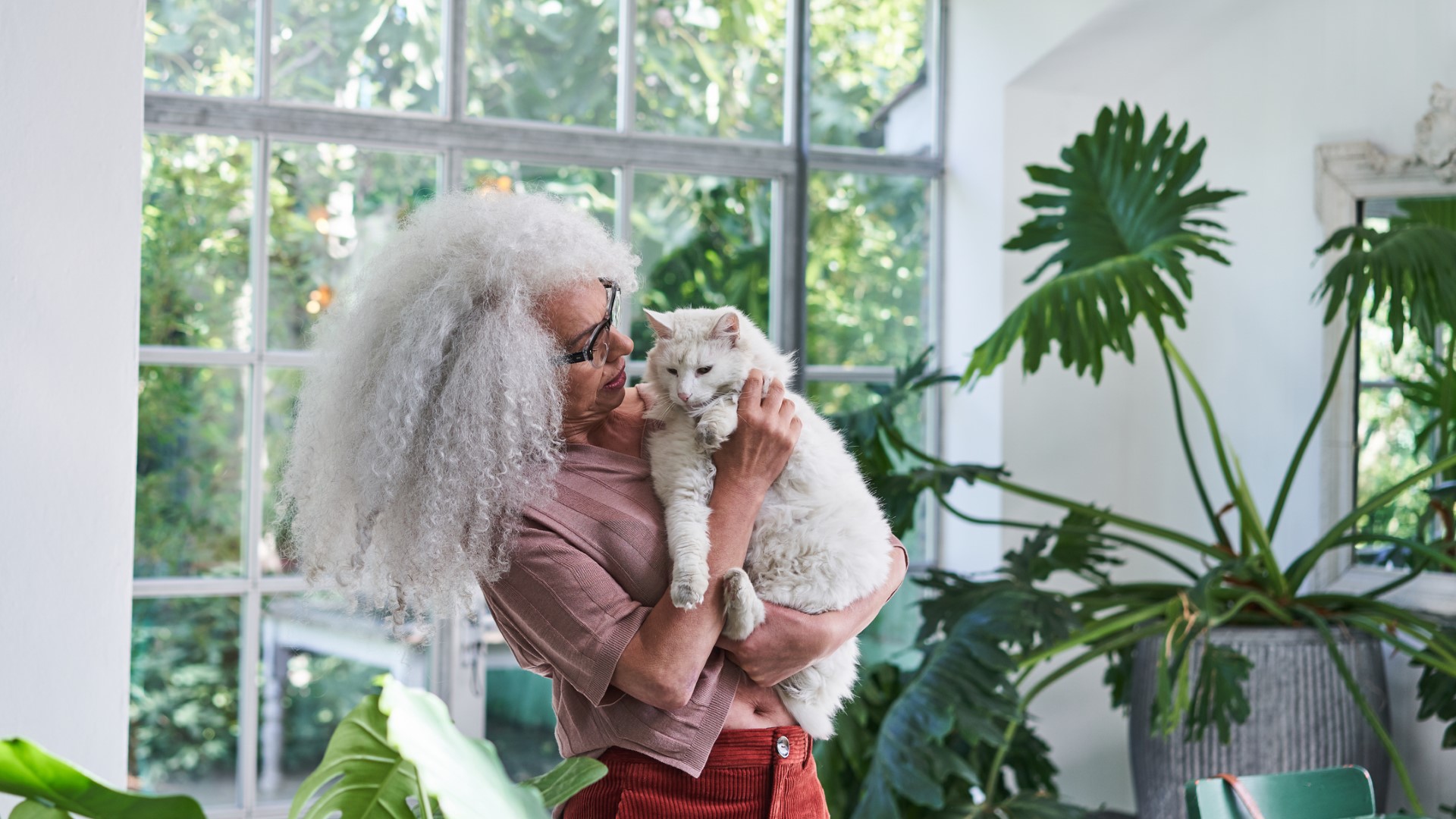
A crucial tip for taking care of senior cats is to give them lots of love. Bonding with your aging kitty increases their emotional well-being, provides companionship and comfort, helps them feel safe, and ensures they feel loved and joyful during their golden years. Bonding can also encourage gentle play and activities to keep your senior cat as mobile as possible.
19. Add water or use wet food
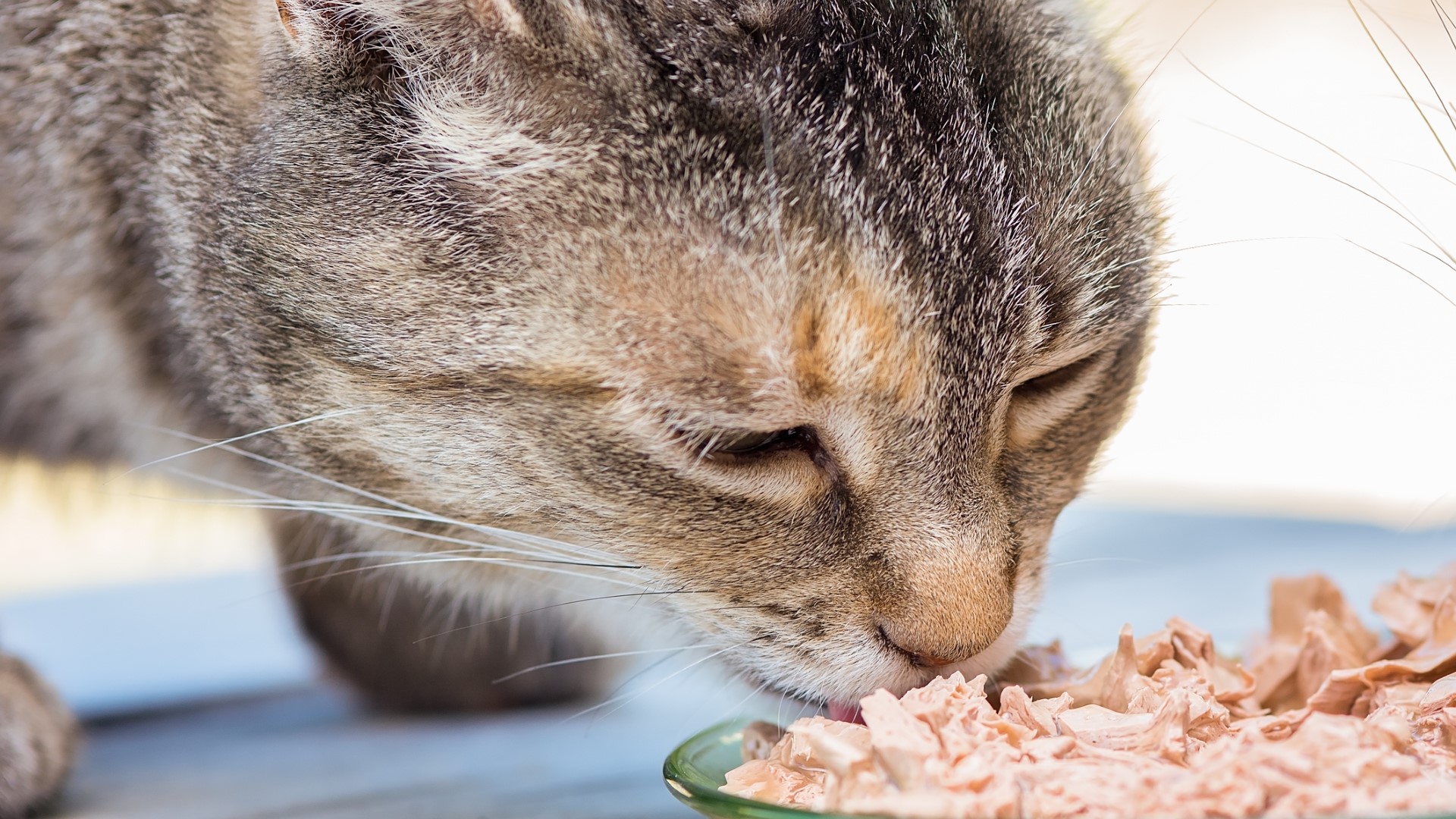
Some senior cats have difficulty chewing and swallowing dry food, so you may want to add water or wet food into their diet or switch to entirely wet food-only meals. Adding moisture to their diet can also help to ensure they get adequate water intake throughout the day. In advanced age, some cats may have lower appetites. Using wet food can also increase the flavor and aroma of their meals and encourage them to eat.
20. Introduce changes slowly
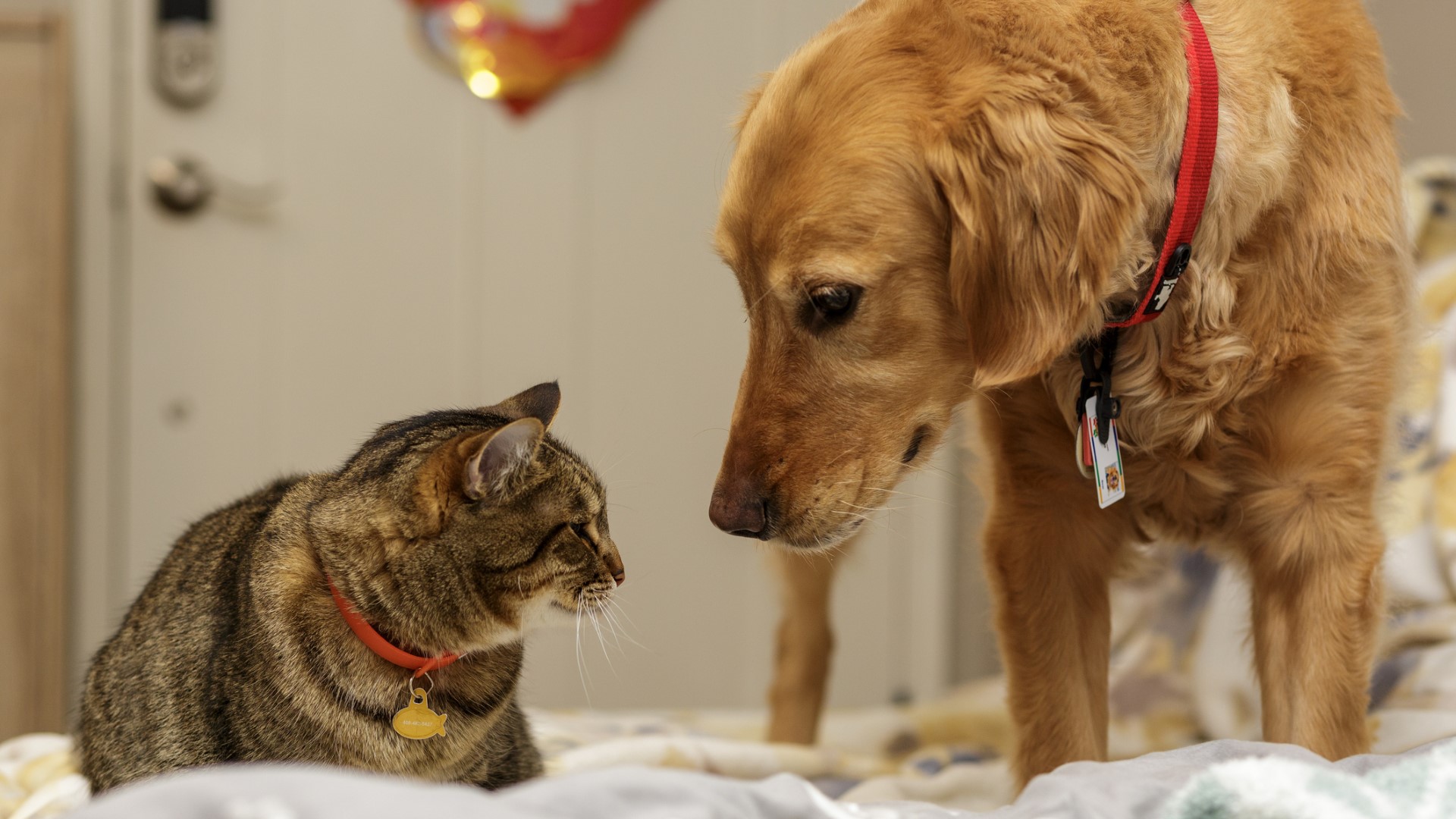
Sudden changes can be hard for any cat to adjust to, but this can be especially true for senior cats, especially ones who may be dealing with cognitive decline. It's important to introduce changes into their life slowly and as low-stress as possible.
If you're introducing a new pet into the home, for example, it can help to spend the first couple of weeks doing scent-only intros with rags and bedding before allowing the pets to meet face-to-face. This can support your senior cat in taking their time to process the change comfortably through scent first.
21. Reduce slippery flooring
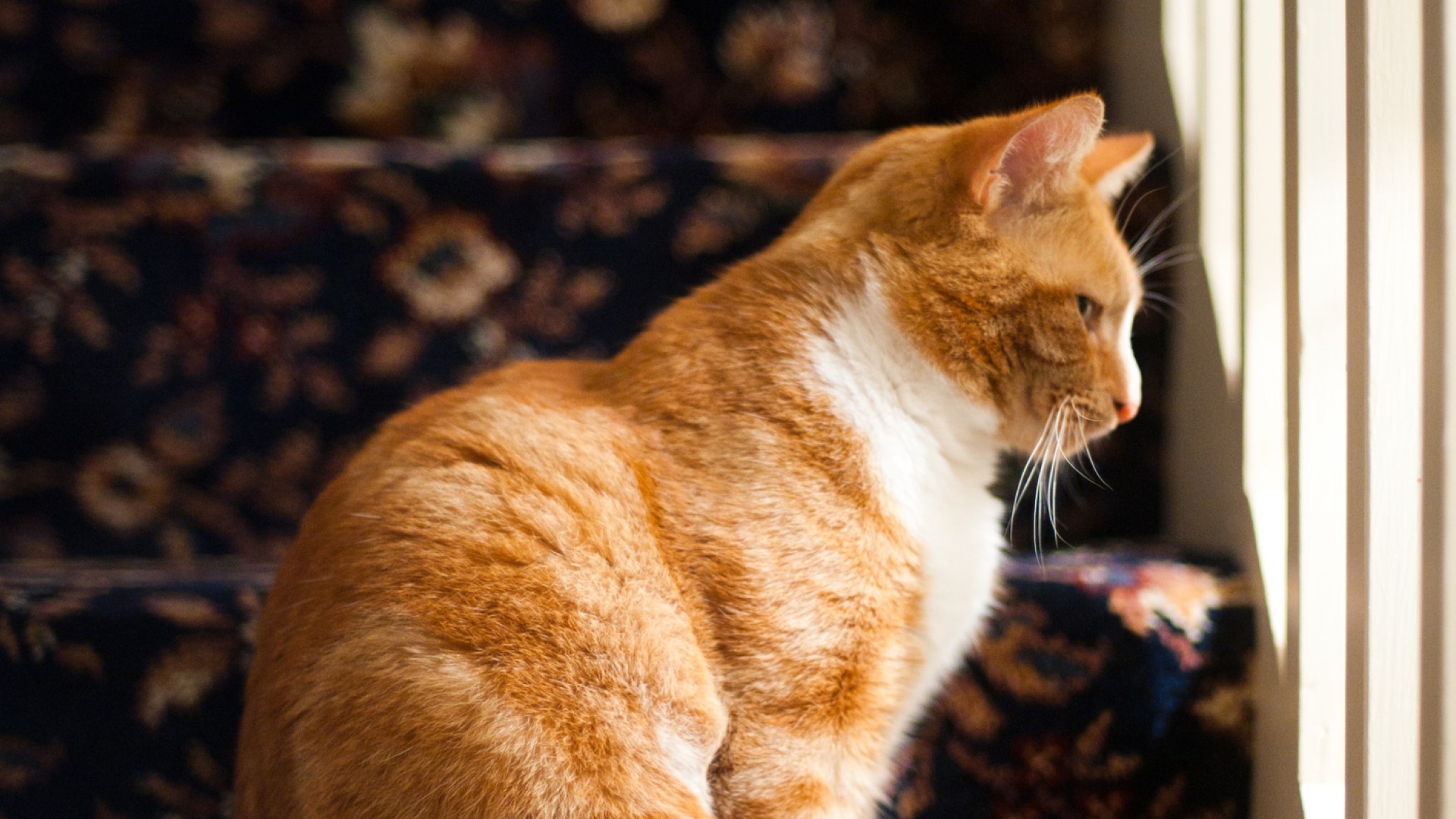
Aging cats with mobility issues or arthritic changes can have trouble walking and standing up on slippery flooring. They can also be more likely to fall or move uncomfortably on slick surfaces. Adding rugs, mats, and carpeting can greatly improve a senior cat's quality of life and mobility. This can be especially important on stairs and near their favorite resting places.
22. Keep them warm
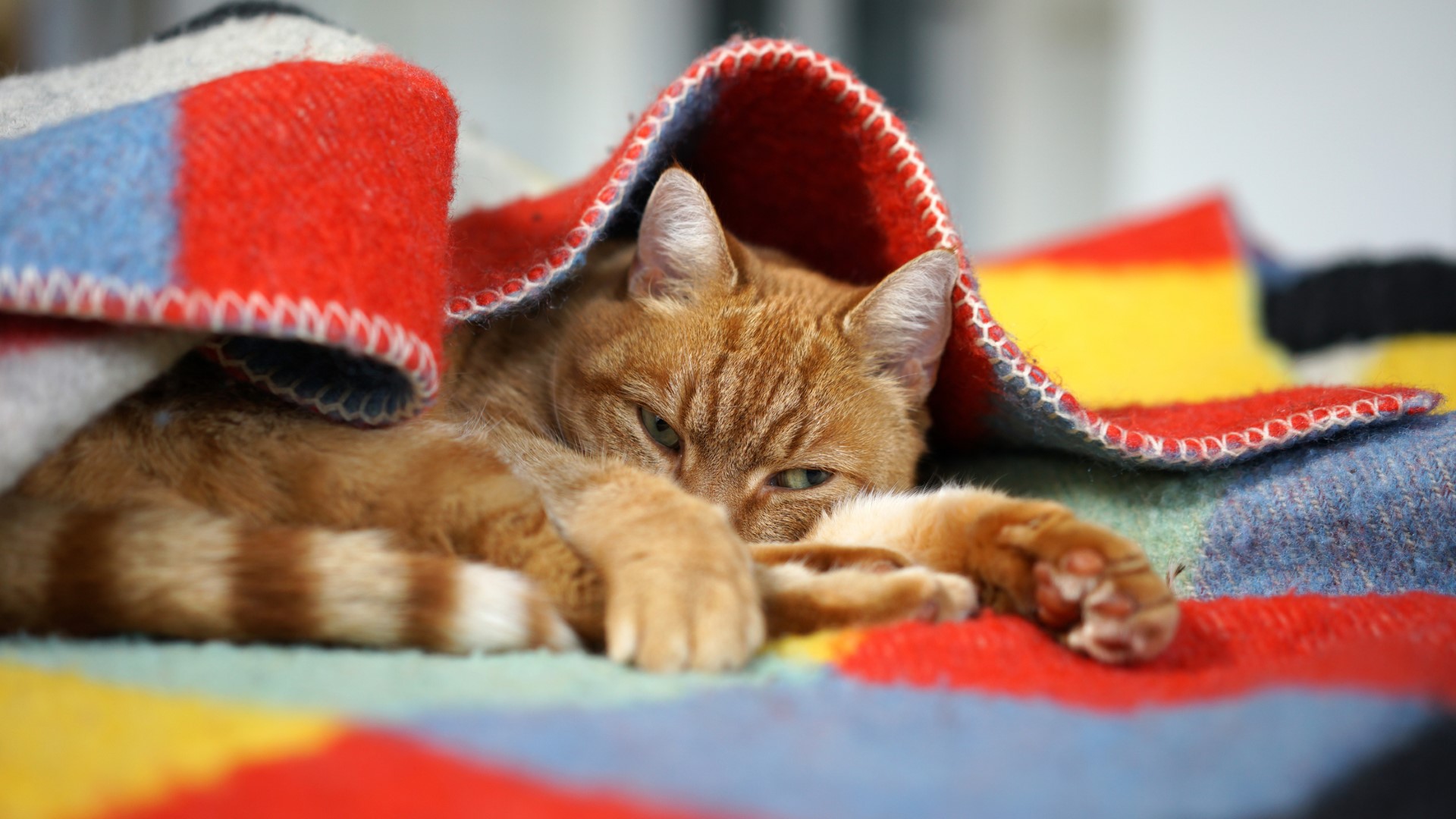
Some senior cats can struggle to stay warm enough, especially those who have difficulty keeping weight on. It's important to have lots of comfortable options to help your aging cat stay warm and comfortable. You may want to line their preferred hiding spots with blankets and move perches closer to windows for more sun access. Cat beds with thick insulation can also protect your cat from the cool temperature of floors.
23. Provide companionship
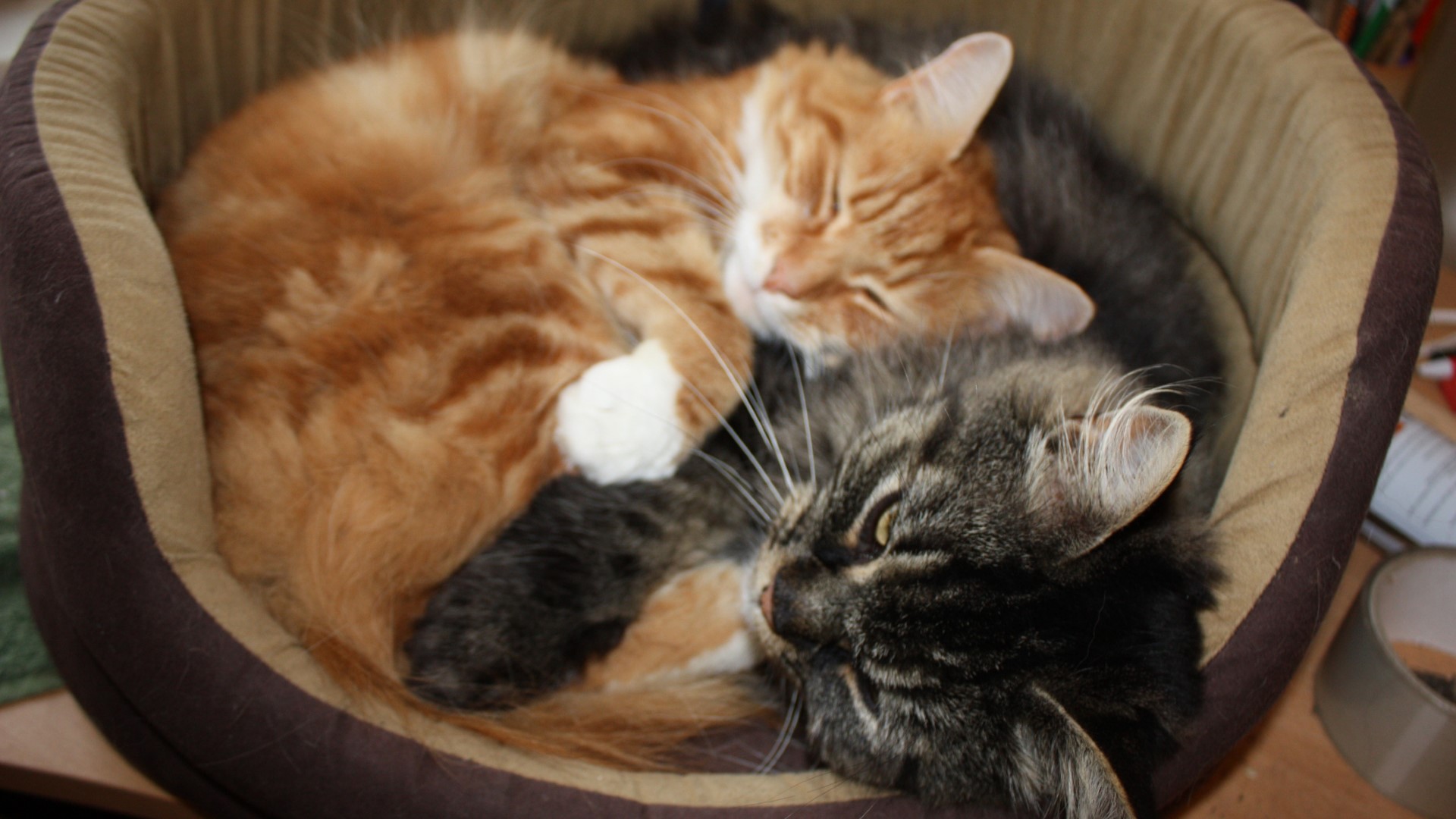
If you work away from the house and want to ensure your senior kitty isn't lonely, consider adopting a compatible cat into your home to provide companionship. Of course, this is only a good idea if your kitty is cat-friendly and not territorial. The best match may be another cat-friendly senior or lower-energy kitty who won't try to push your aging feline pal into being more active or mobile than they are able to.
24. Provided sunny hang out spots
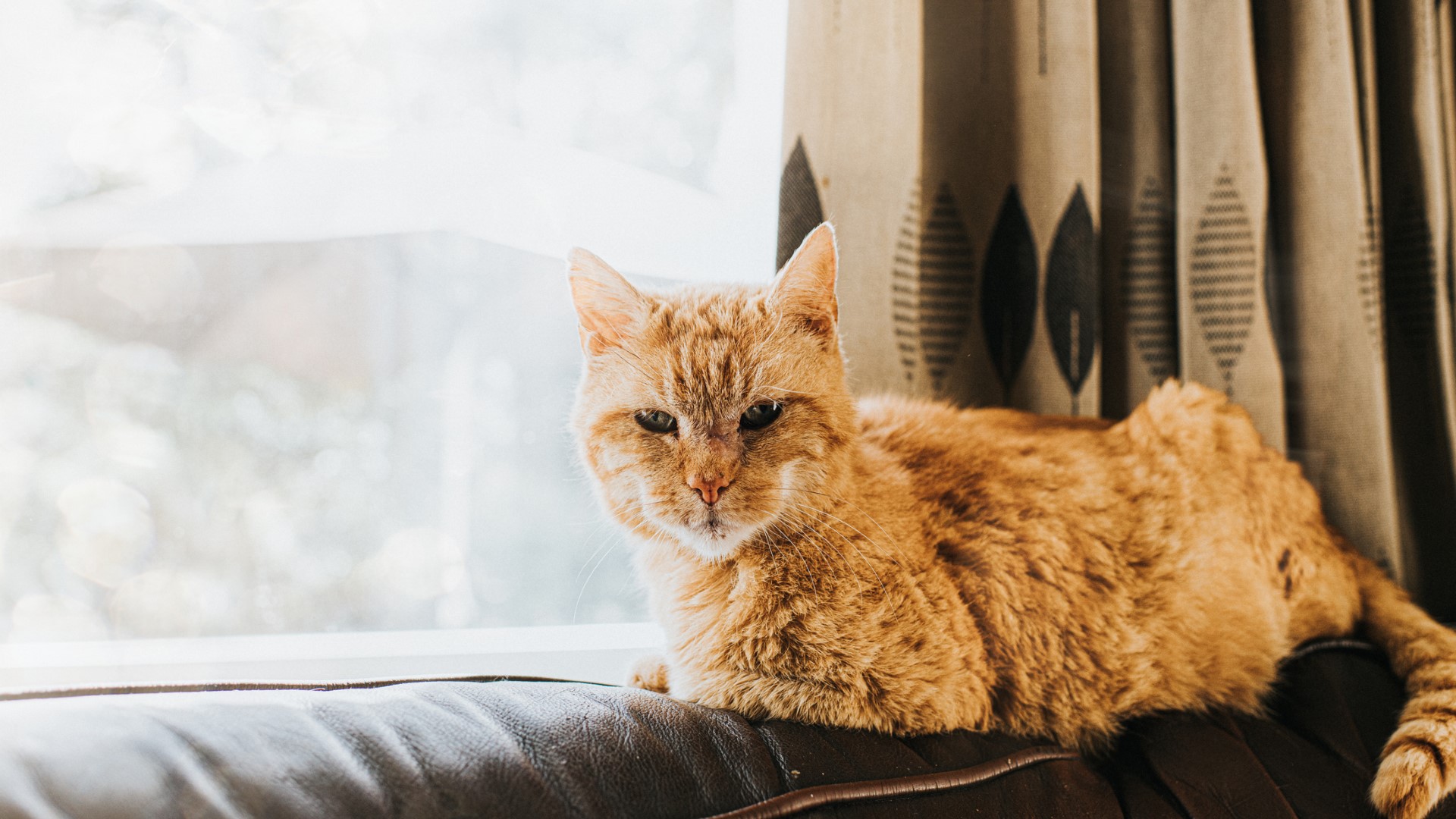
Having comfortable and sunny spaces for your senior cat can increase their quality of life in several ways. Having perches or comfy beds next to a sunny window can give them access to visual enrichment, warmth, and relaxation from the calming effects of sunbathing. Exposure to natural light may also boost their mood and encourage healthy sleep patterns.
25. Maintain routine

For many senior cats, an established routine can help them feel safe and secure. You can accomplish this by sticking to a consistent feeding, play, grooming, enrichment, medication, treat, and nighttime schedule. By incorporating a routine into your aging cat's life you can provide them with a sense of predictability and stability. Establishing a routine also allows you to quickly notice changes in your cat's behavior and health status.
26. Gentle, daily exercise
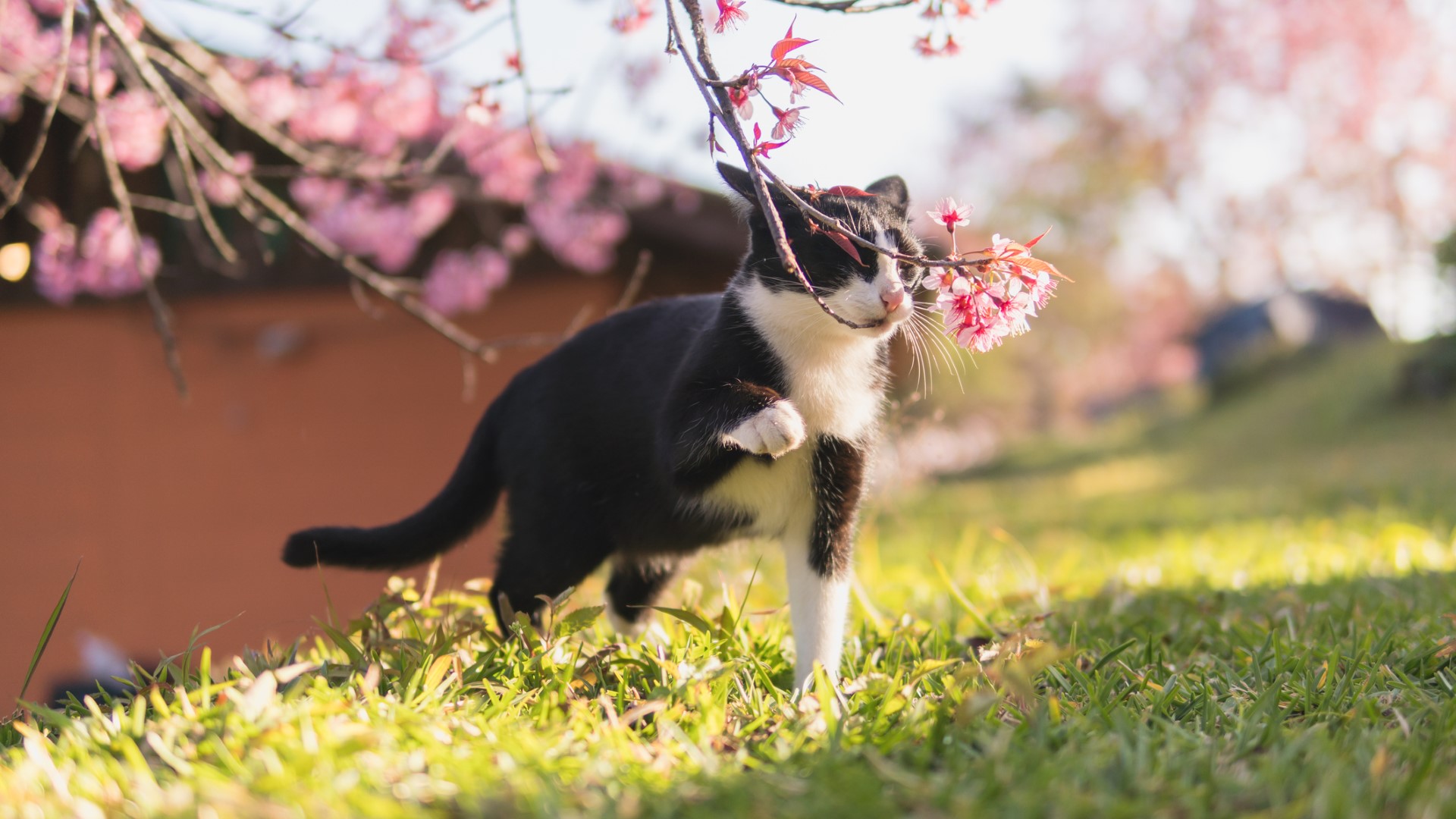
While their energy levels may decrease, it's still important to try to maintain a schedule of gentle, light exercise for your senior cat. Light exercise and movement can help maintain muscle mass, improve joint flexibility, improve circulation, provide enrichment, aid in digestion, maintain or improve balance and coordination, and increase their quality of life.
27. Handle them gently
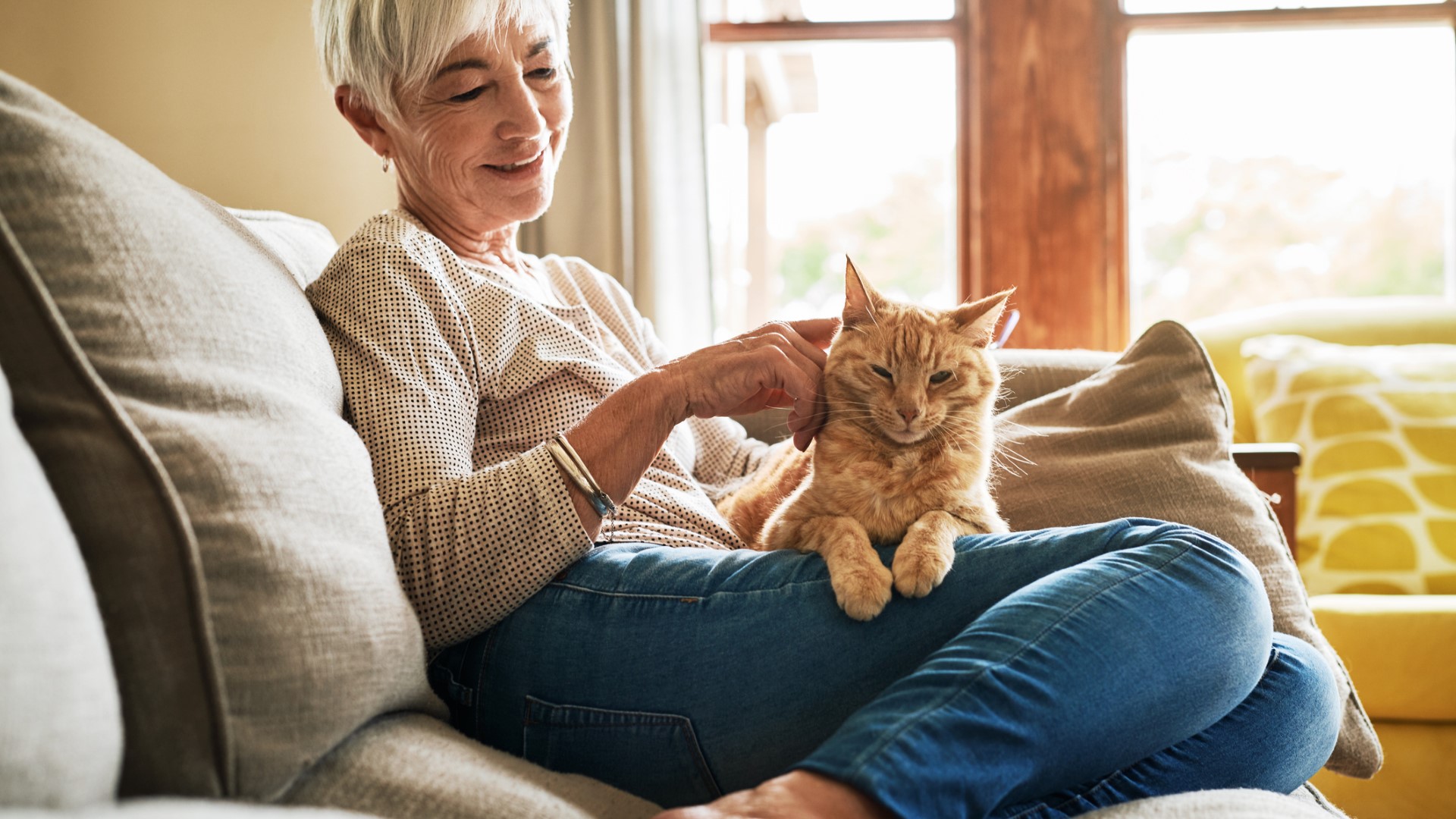
As your cat ages, it becomes increasingly important to handle them with extra care. Senior cats can have aches and pains and be more fragile, so it's crucial to handle them as gently as possible. A consistently gentle approach will also make them more likely to accept routine checkups, dental care, nail trimmings, and brushing. Additionally, by always handling them with the utmost care, you can quickly identify if they suddenly appear to be painful in response to light touch.
28. Keep their coat healthy
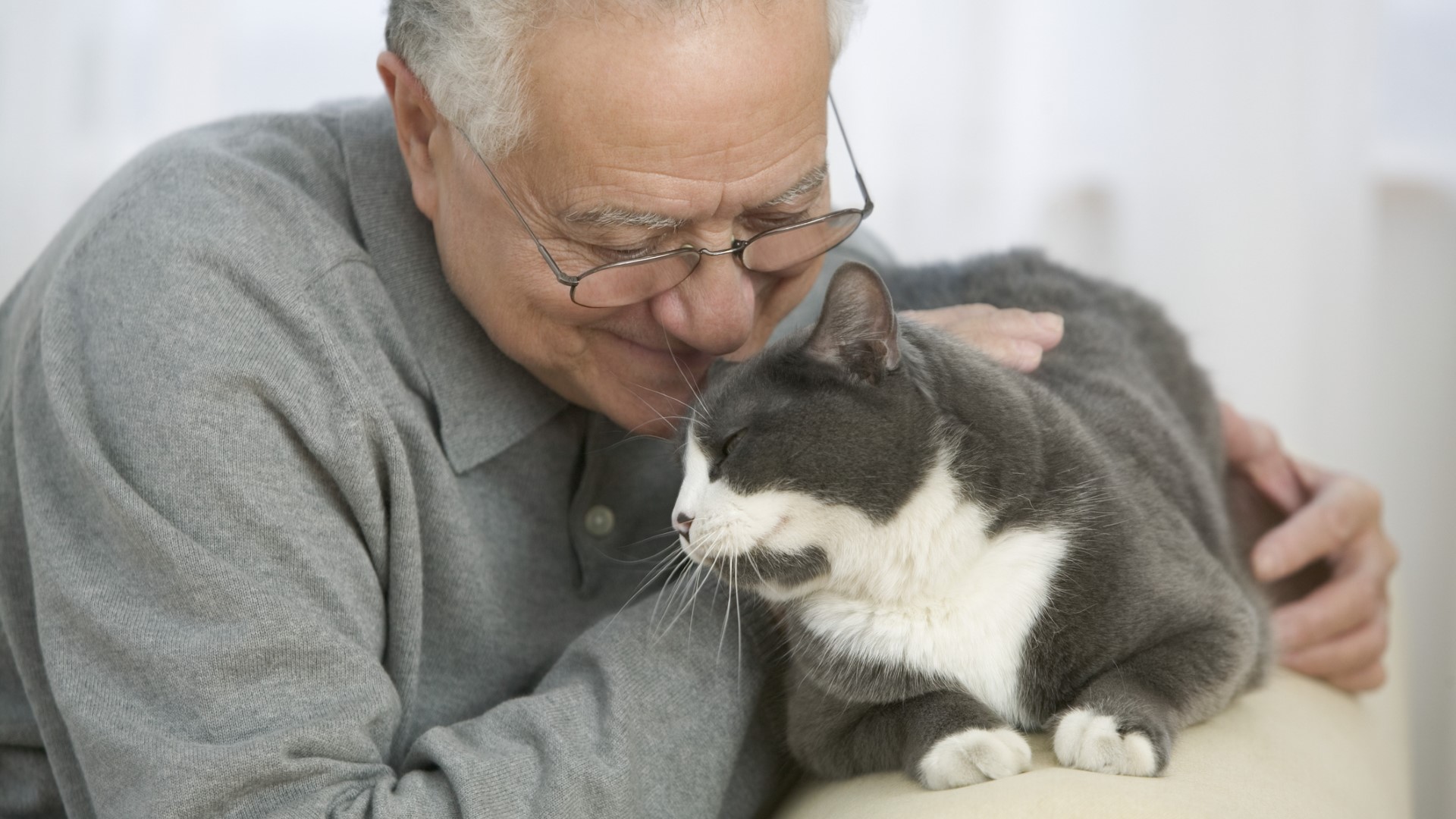
Keeping your senior cat's coat healthy promotes their overall well-being and prevents the development of skin infections and painful matting for long-haired kitties. Maintaining a healthy coat also includes the prevention of parasites that affect the skin such as ticks and fleas. Regular brushing, ensuring your cat is well-hydrated, and giving them supplements that contain essential fatty acids all contribute to a healthier, shinier coat.
29. Keep their claws trimmed
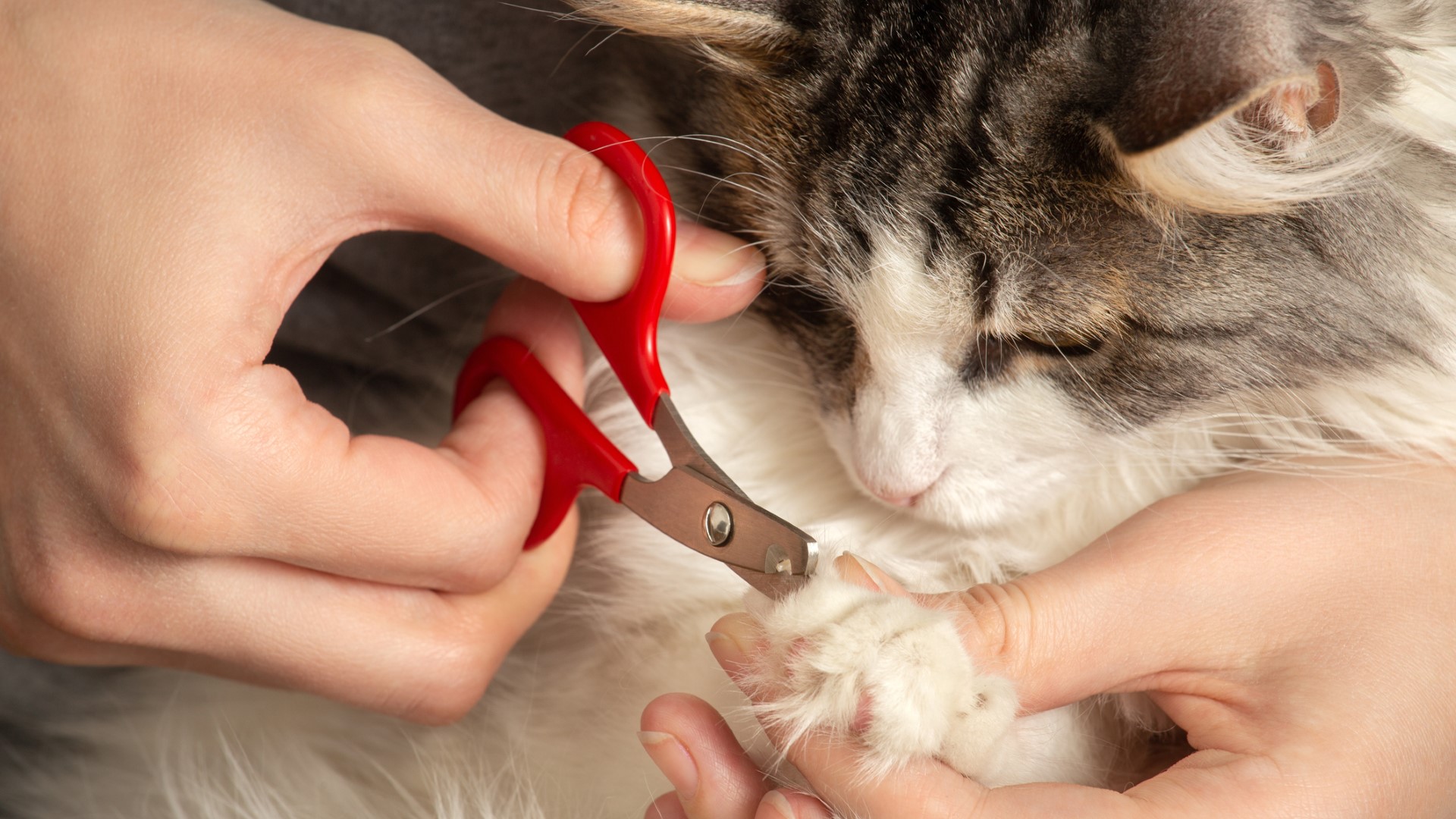
As some cats age, they can become less able to keep up with their own nail maintenance. It's important to check the condition of their nails every couple of weeks, and especially so if you notice your cat no longer using or reducing the use of their scratching post. If your senior kitty has nails with a circular, hook-like curve to them then it's time to for a trim with one of the best cat nail clippers.
30. Set up comfortable hiding spots
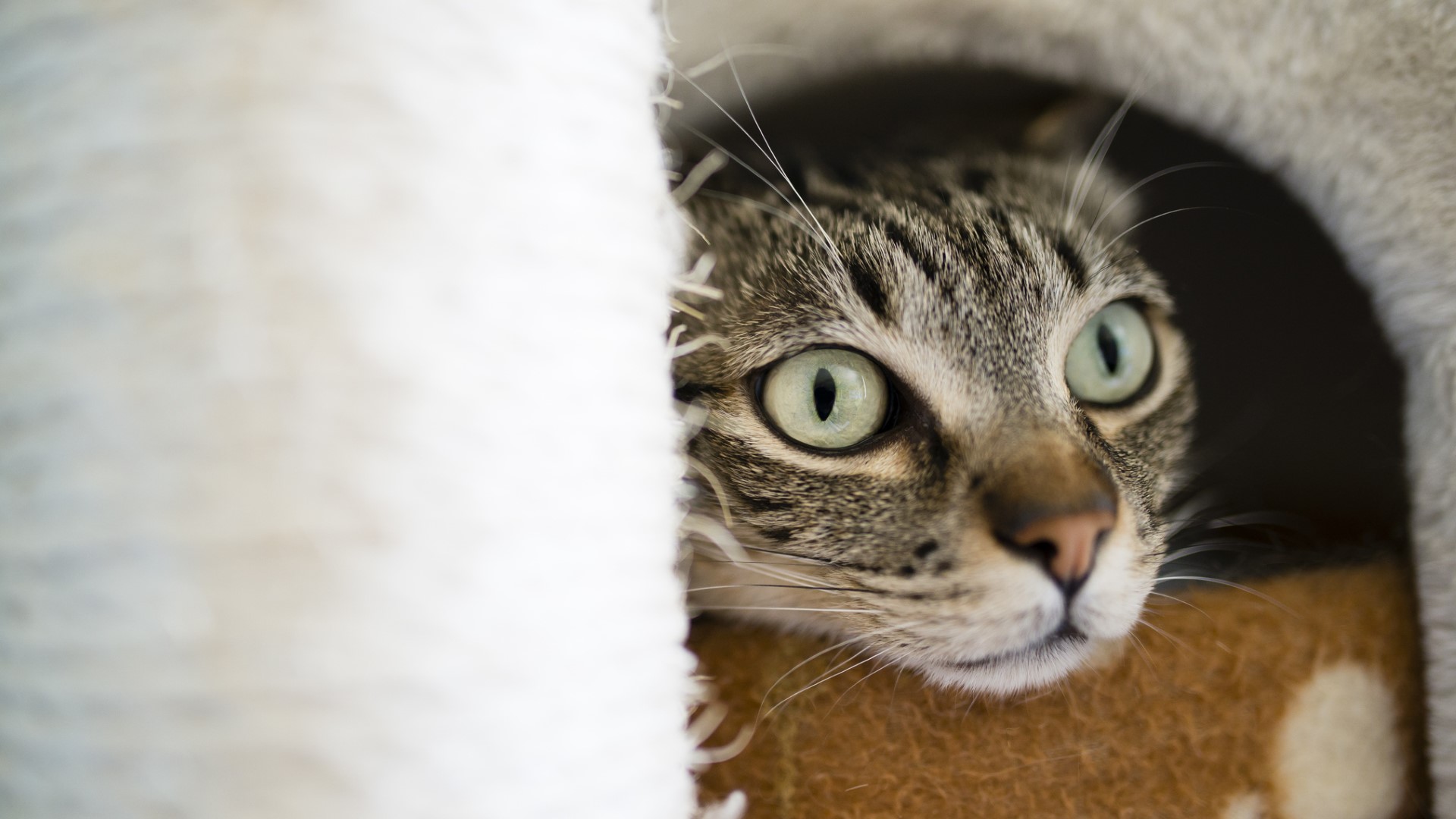
To ensure your senior cat doesn't feel overwhelmed by their environment, it's a good idea to set up plenty of comfortable and safe hiding spaces for them to retreat to. These spaces should be easily accessible for your aging kitty to reach and comfortable for them to hang out in. You can set up hiding places with domed cat beds, cardboard boxes lined with blankets, and little cat forts under a bed or table.
31. Monitor for signs of cognitive decline
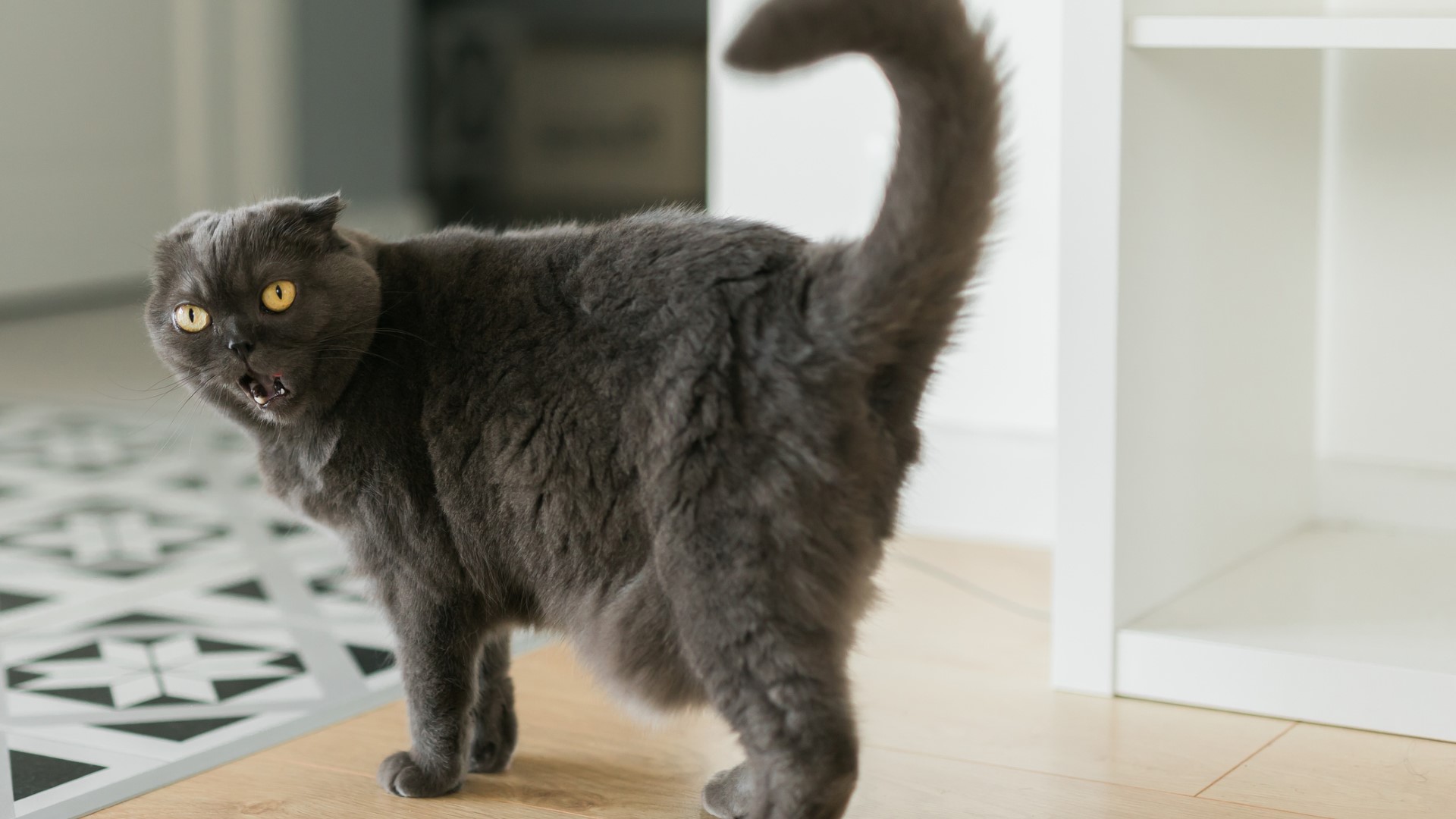
Sadly, some senior cats will experience cognitive dysfunction syndrome. According to the Cornell Feline Health Center, cognitive dysfunction syndrome is an age-related, progressively debilitating disorder that occurs in cats and is similar to Alzheimer's disease. If your cat is above 10 years old, it's important to monitor for signs of cognitive decline, such as spatial disorientation, staring at walls, altered sleep patterns, suddenly not using their litter box, and loud vocalizing at night.
Early detection can help your cat receive the best supportive care to help keep them as comfortable as possible.
32. Feed small, frequent meals
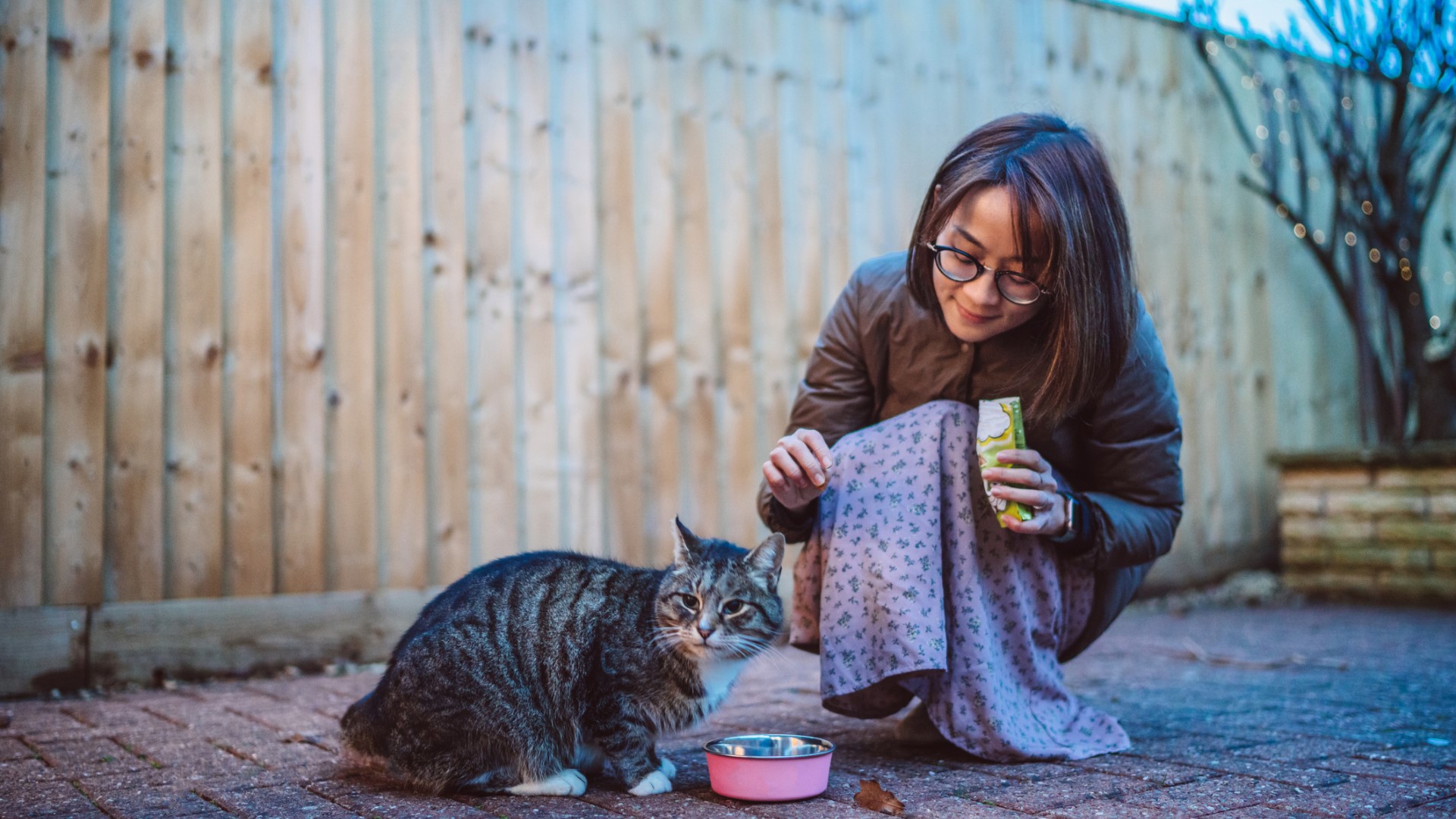
For some senior cats, eating two large meals a day can result in digestive upset or constipation. Feeding smaller meals multiple times per day can benefit your aging kitty in several ways. For some cats, frequent, small meals may improve digestion and nutrient absorption, maintain blood sugar levels, increase water intake (if fed wet food), boost their mood, and be easier on their kidneys and liver.
Cammi is a freelance writer with over 5 years of experience specializing in creating accessible and engaging pet, wildlife, and mycology content. She’s passionate about sharing accurate, ethical, and animal welfare-centered writing that fosters understanding, curiosity, and compassion for our pets and the natural world. She lives off-grid in a self-built cabin with a rambunctious pack of rescue and foster dogs. In her spare time, Cammi enjoys volunteering with animal shelters, foraging for mushrooms, playing viola and guitar, and traveling.
